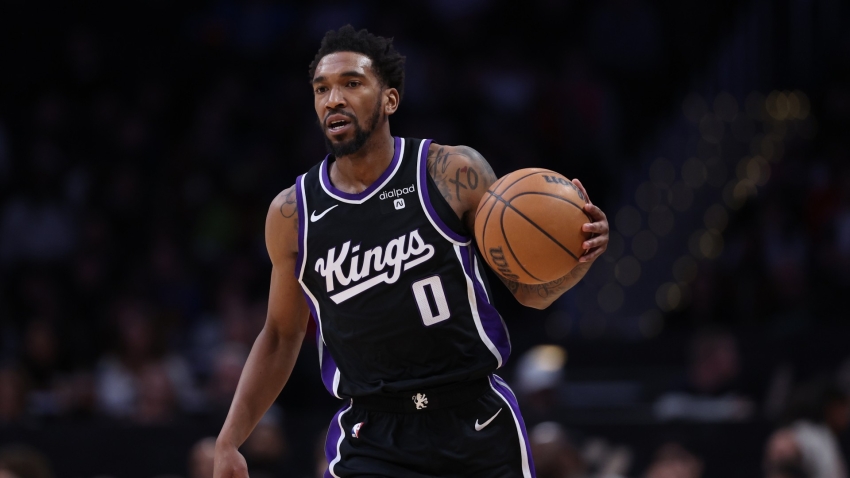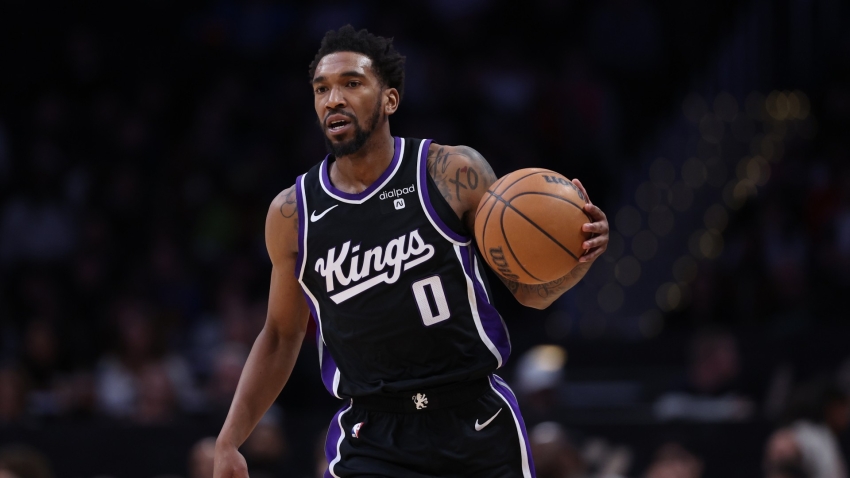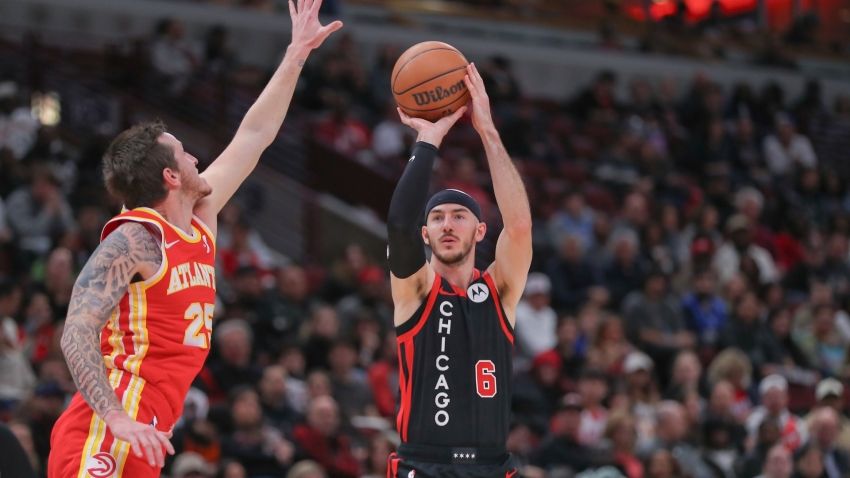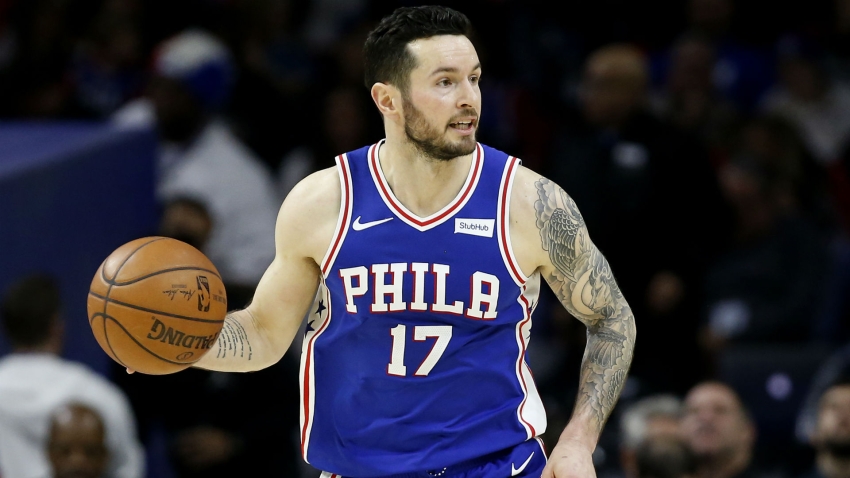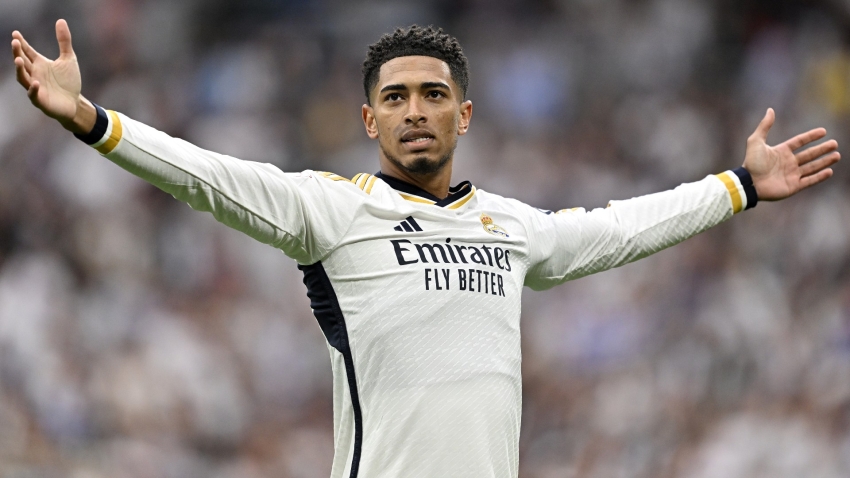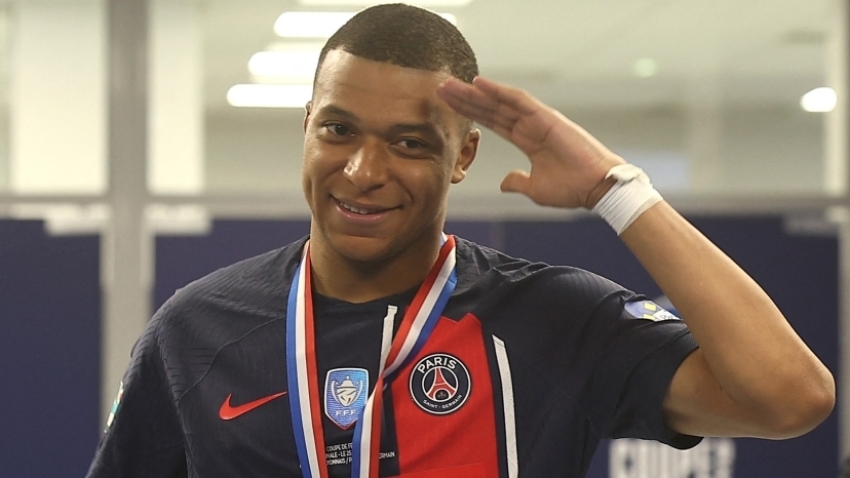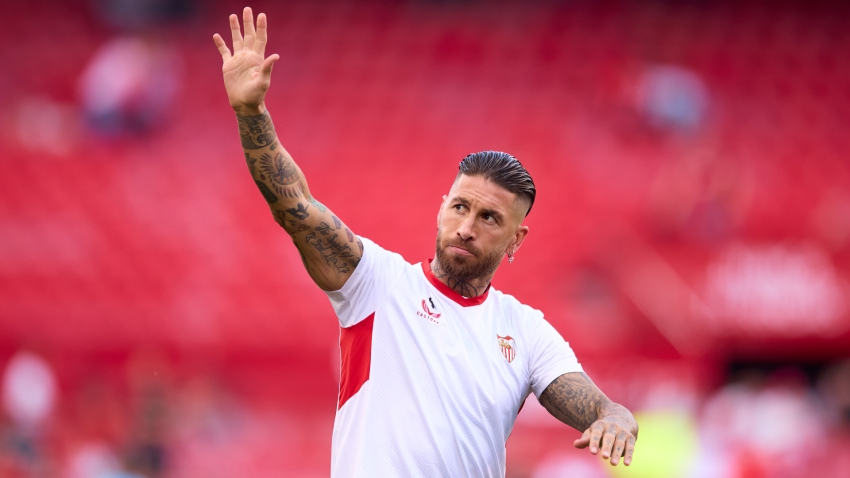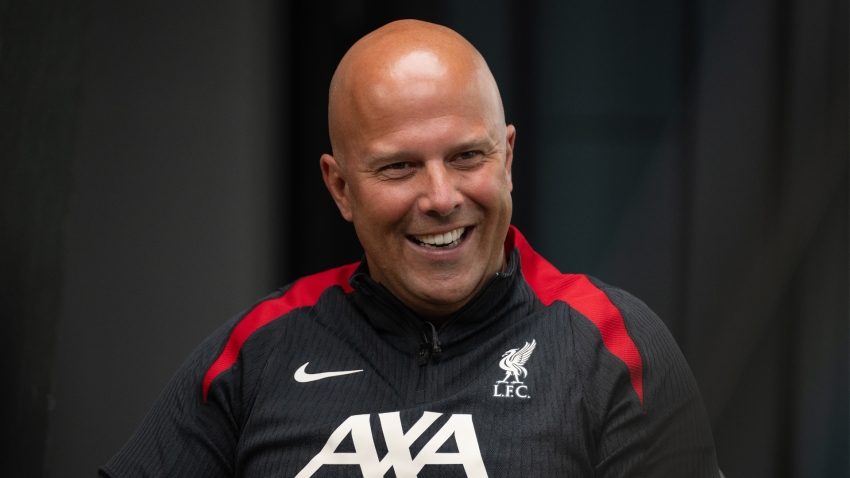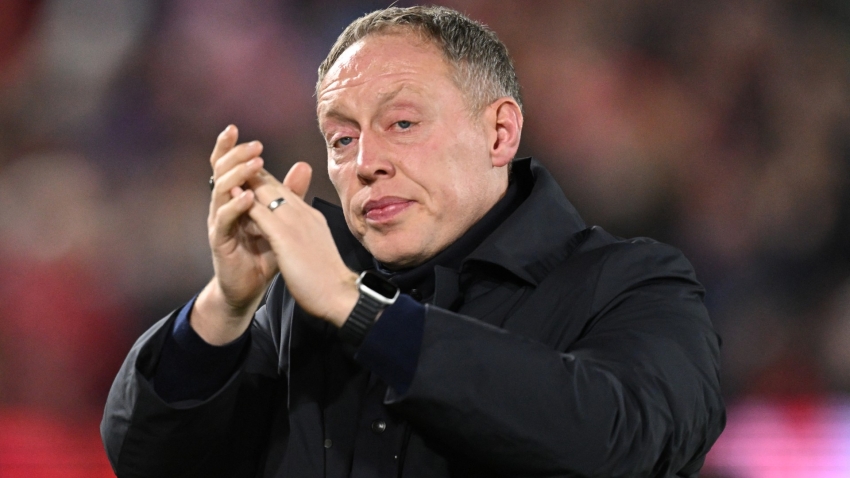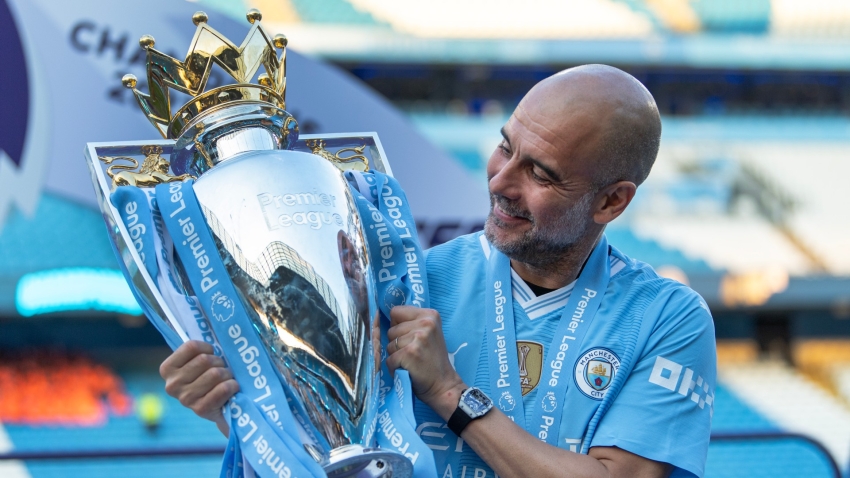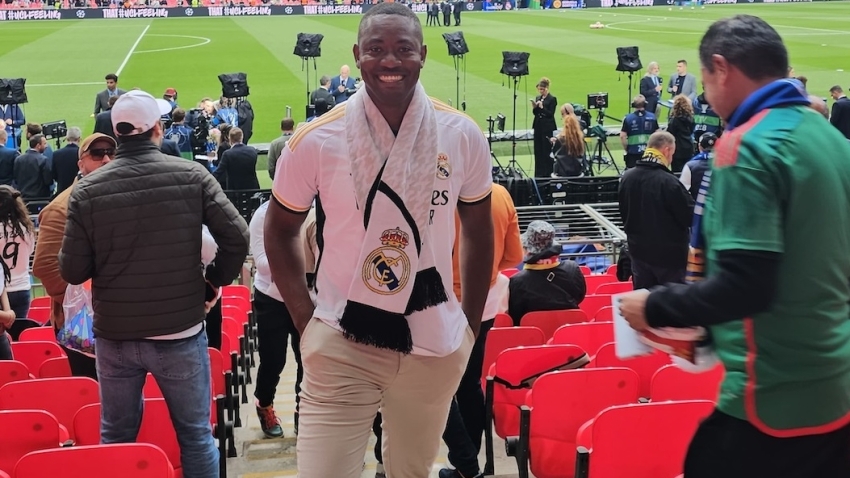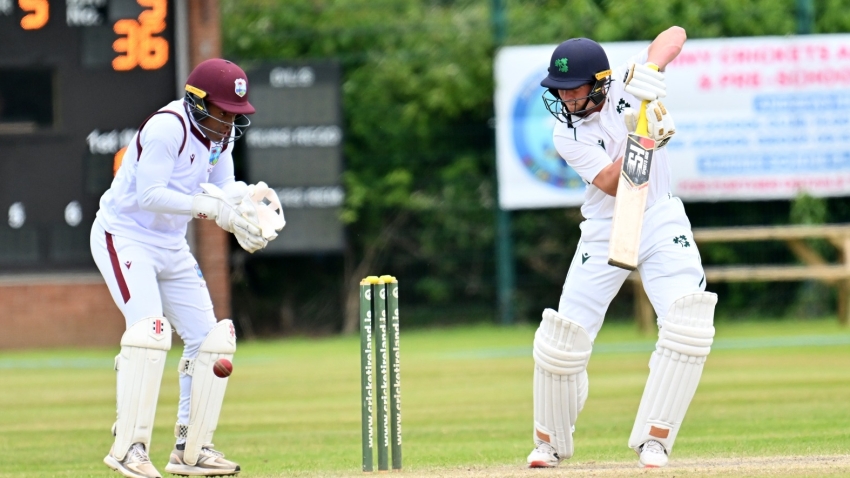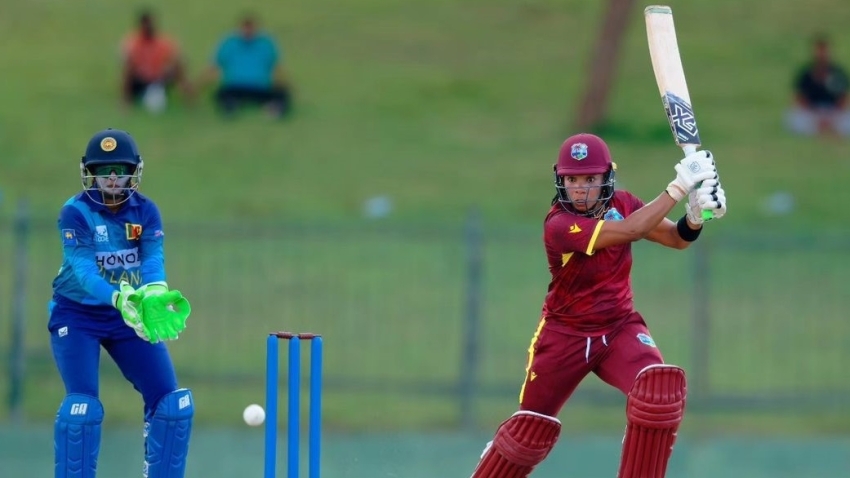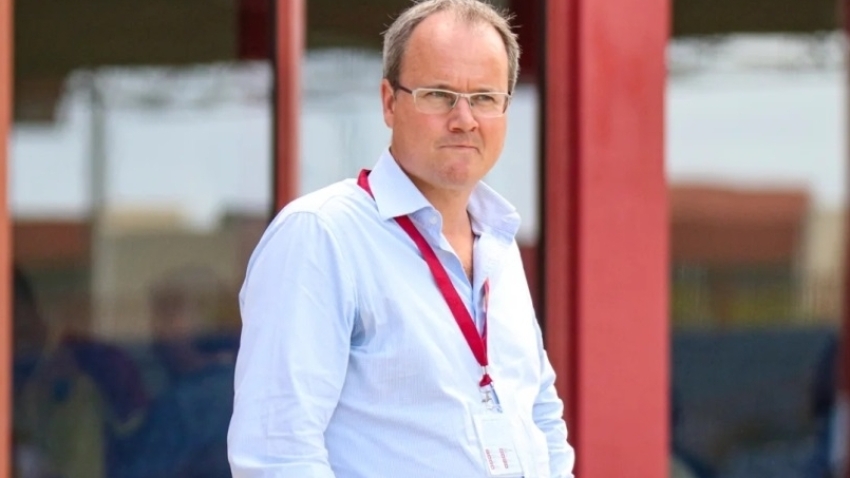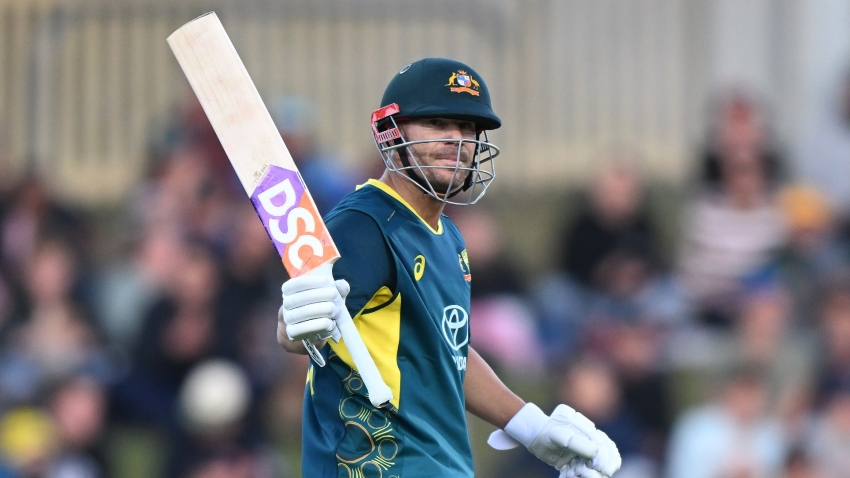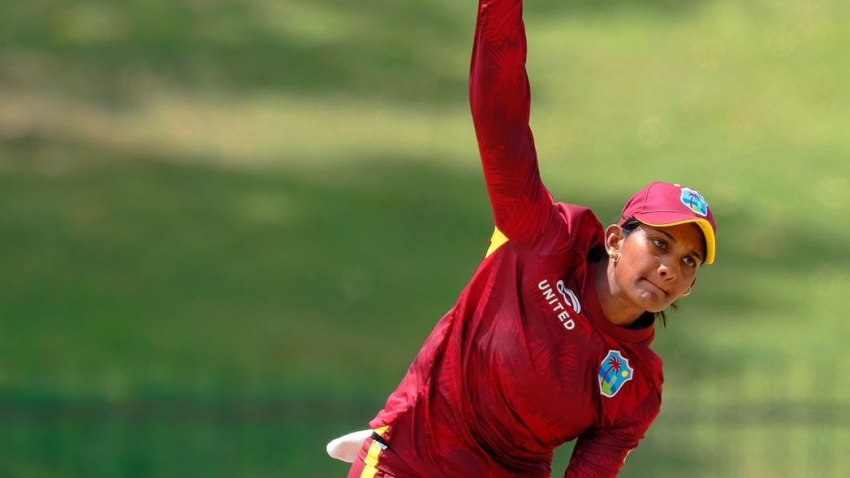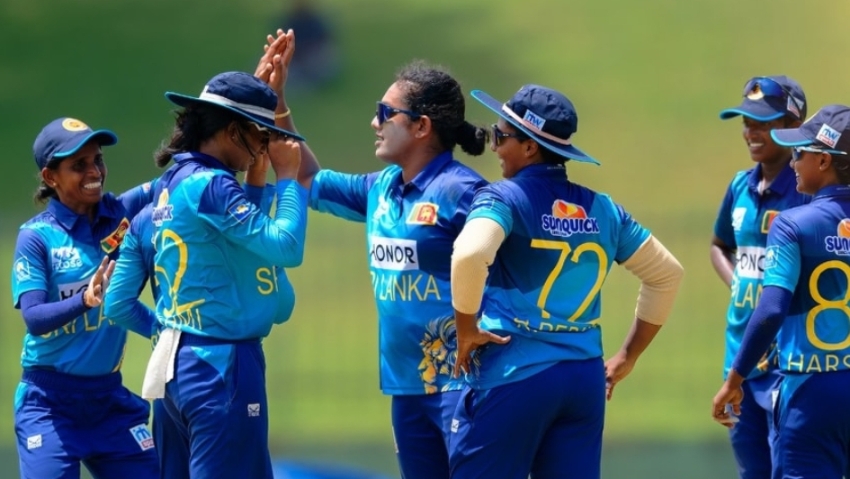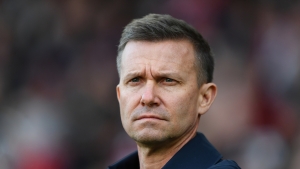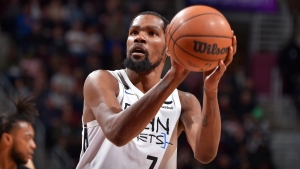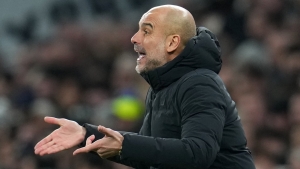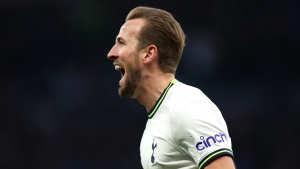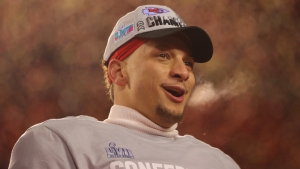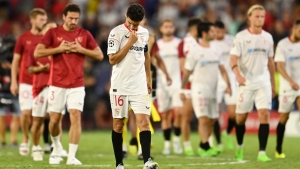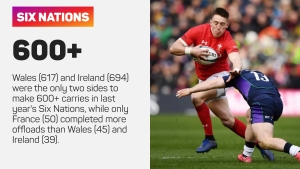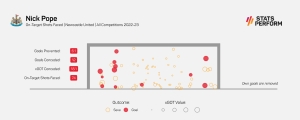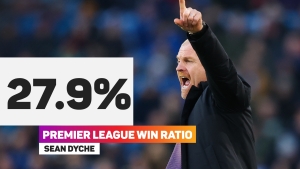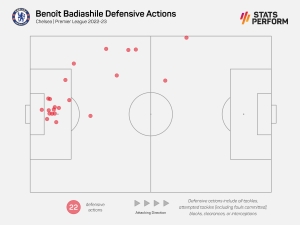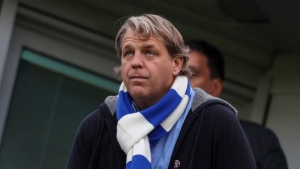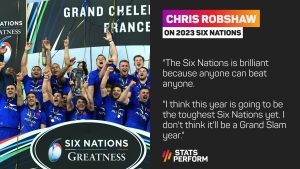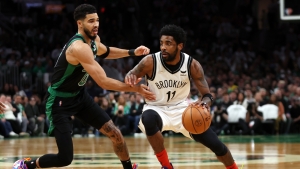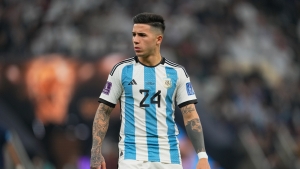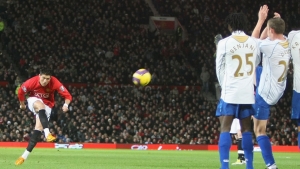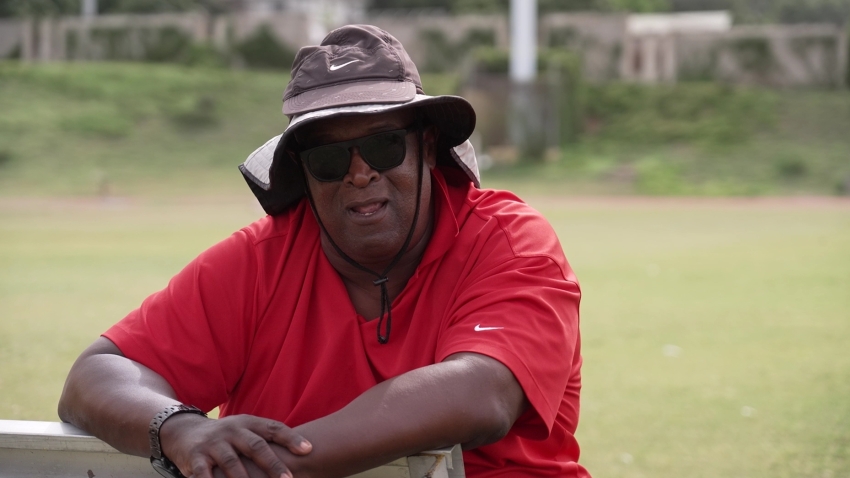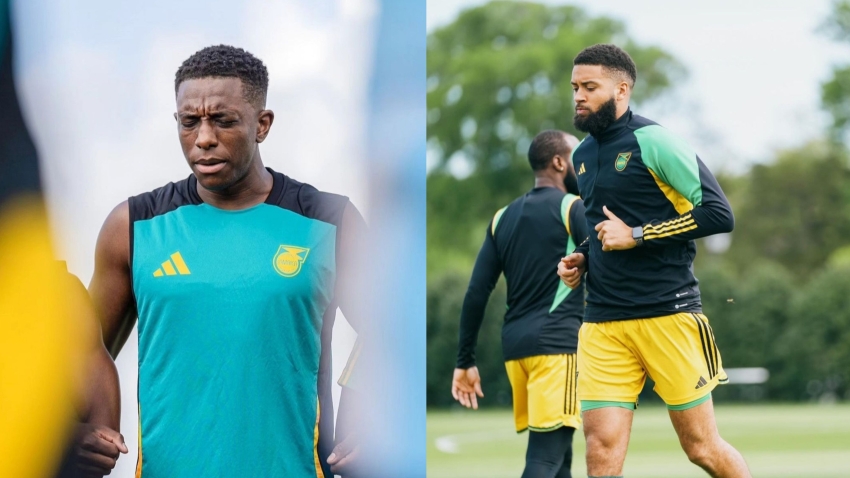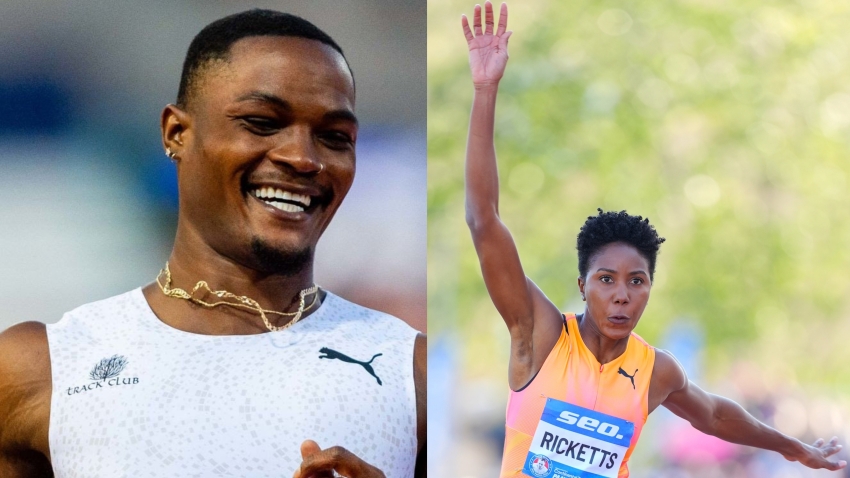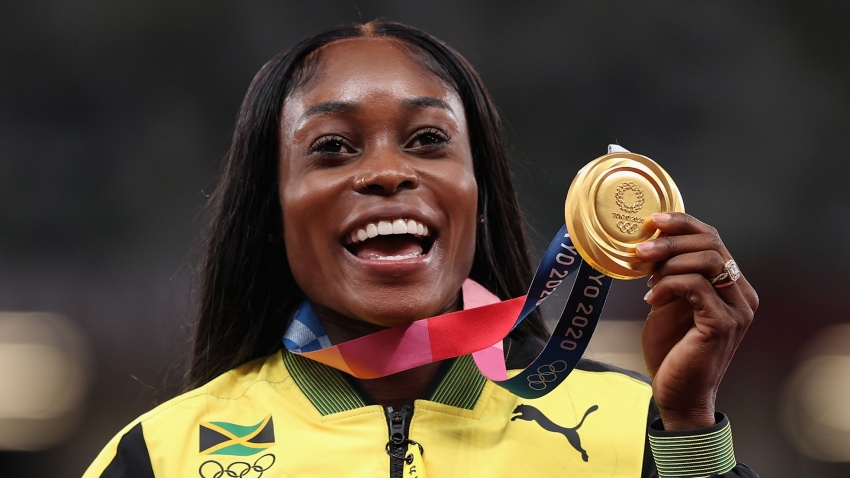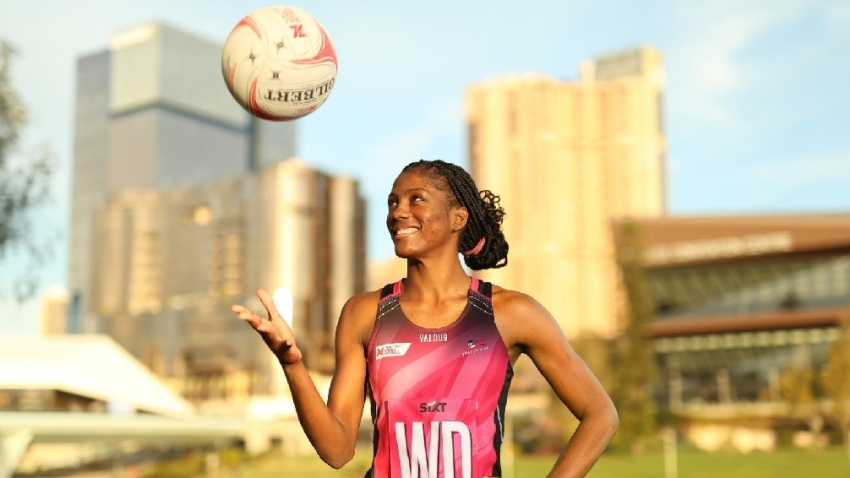Leeds set for another new era after Marsch sacking, but will it be same old story against Man Utd?
February 06, 2023At the end of February 2022, Leeds United bosses had seen enough.
"This has been the toughest decision I have had to make," said chairman Andrea Radrizzani at the time.
Leeds had taken just one point from six games, leaving them only two points above the relegation zone. A 4-0 home defeat by Tottenham was the final straw for Marcelo Bielsa, who was dismissed on February 27.
At the beginning of February 2023, Leeds United bosses had again seen enough as they parted company with Bielsa's successor Jesse Marsch.
Leeds have taken just three points from their past seven games, leaving them level on points with Everton in the final relegation spot, albeit having played a game fewer than the three teams below them.
Unlike Bielsa, who ended the club's long wait to get back into the Premier League and then guided them to a ninth-placed finish in their first season back, Marsch never truly won over the fanbase.
Whereas Bielsa had murals dedicated to him all over west Yorkshire throughout his time in change, with his exit doing little to impact the esteem he's held in around Leeds, Marsch's year in charge will likely soon be a distant memory.
Indeed, the 95-word statement put out by the club on Monday confirming his departure – with no comment from Radrizzani or his peers – was as brutal as it was damning.
And so Leeds are now on the lookout for a new man to keep them in the division, with Carlos Corberan – who has impressed in his four months at West Brom – the early frontrunner to take charge.
Bielsa is also reportedly among the contenders to succeed the man who succeeded him, while Mauricio Pochettino, Ange Postecoglou and Ralph Hasenhuttl have been touted as other options.
New manager bounce?
Pulling the plug on Marsch's tenure was a big call by Leeds chiefs, coming in the same week they face Manchester United in back-to-back Premier League games.
It will be only the second time in the competition's history that the same two teams have met in successive games, following Arsenal's 2-0 and 4-2 wins over Bolton Wanderers in January 2010.
Leeds are in a race against time to bring a new man in before the first of those games at Old Trafford on Wednesday, although they then have a further four days ahead of welcoming their fierce rivals back to Elland Road.
As it stands, Marsch's assistant Chris Armas, who previously worked as Ralf Rangnick's right-hand man at Old Trafford last season, is expected to oversee the midweek match in Manchester.
A new manager bounce would come in handy for at least one of those games. In the view of many Leeds fans, simply having anyone other than Marsch in the dugout will boost their chances of getting a result.
Whether it be a caretaker or a permanent head coach, though, history suggests bringing in someone new ahead of playing United very rarely pays off.
Of the 16 previous occasions a manager or caretaker has taken charge of his first Premier League match against United, the Red Devils have won 12 times, drawn once and lost only three times.
However, the most recent such instance was just three months ago when Unai Emery inspired Aston Villa to a 3-1 home win against Erik ten Hag's side, ending United's nine-match winning run in such encounters.
Emery joins an elite list that also includes Alan Curbishley and a certain Jose Mourinho, who masterminded wins over United in their first Premier League games in charge of West Ham and Chelsea respectively.
Little joy for Leeds
Perhaps a more telling statistic, though, is the one that highlights just how badly Leeds have performed in this fixture down the years, regardless of who has been at the helm.
Leeds have won only one of their past 17 Premier League games against the team from across the Pennines, with that a 1-0 victory in September 2002.
That winless run goes back even further when only accounting for top-flight matches played at Old Trafford, where they were last victorious in February 1981.
Returning to the elite after 16 years away has done little to change the one-sided nature of this fixture, with Leeds losing three of their four meetings over the past two campaigns and drawing the other.
The 15 goals they have conceded against United in 6-2 5-1 and 4-2 defeats are second only to the 16 shipped against Manchester City over that same period.
Furthermore, since the start of last season, Leeds have taken just one point from their eight games against sides starting the day in the top three.
Marsch or not, this was always going to be a match in which the odds were stacked massively against Leeds, particularly with their opponents on a 13-game winning streak at Old Trafford in all competitions.
That is the Red Devils' best run since a record 20 wins in a row between December 2010 and September 2011.
Plenty to play for
Ending that barren run will go a long way to boosting Leeds' survival hopes, although ultimately whoever comes in will have 16 matches after this week's unique double-header to steer the Whites to safety.
Without a win in seven Premier League games, with that the longest ongoing run of any side, it hardly came as a big surprise to see Marsch given his marching orders on the back of 1-0 loss at Nottingham Forest.
The American departs with a Premier League win percentage of 25 across his 32 matches, which is the second-lowest of any Leeds boss in the division after Eddie Gray (24 per cent).
Another new era now beckons at Elland Road, and whoever it is that replaces Marsch will have their work cut out in the short term keeping Leeds above the dotted line.
Whether that can be achieved remains to be seen. But if we have learned anything about Leeds throughout the Premier League era, it is that it will certainly make for entertaining viewing either way.
Durant, Lakers, Warriors – Big questions ahead of NBA trade deadline
February 06, 2023The latest Kyrie Irving saga is over with time to spare before the trade deadline, but how will it impact the rest of the NBA?
The Dallas Mavericks agreed a trade for Irving and Markieff Morris on Sunday, sending Dorian Finney-Smith, Spencer Dinwiddie, an unprotected 2029 first-round pick and second-round picks in 2027 and 2029 to the Brooklyn Nets.
That shake-up had been anticipated as Irving pursued a trade, yet it leaves plenty to ponder ahead of Thursday's deadline.
Stats Perform considers the week's key questions as those hoping to be in contention respond to the Mavs' big move.
How does Durant react?
Irving and Kevin Durant arrived in Brooklyn together in 2019 but, for myriad reasons, the Nets never saw the best of them as a pair as they started only 71 regular season games together.
Durant repeatedly stood by Irving as various controversies threatened to derail the team, yet he has now been left behind.
While the package the Nets received from the Mavs should ensure they have enough to put around Durant and remain competitive, what does the two-time Finals MVP want for himself?
The suggestion over the weekend was the Phoenix Suns – under new ownership – would be keen on making a move for Durant if he became available, and there would be other potential contenders who would see the attraction of a genuine superstar to get them over the line.
Durant has failed previously to force his way out of Brooklyn, but his situation is certainly worth watching.
What now for the Lakers?
If not the Mavs, the Los Angeles Lakers seemed the most likely destination for Irving, with Russell Westbrook and two unprotected first-round picks said to make up the package offered to the Nets.
The Nets were understandably unconvinced by Westbrook's ability to have an impact in 2023, however, and now the Lakers must regroup.
Superstar LeBron James could be forgiven for being far from impressed with the team's inability to secure a trade he had pushed for, and his cryptic Twitter posts as news broke of the Mavs deal would suggest that is the case.
It is expected the Lakers will remain active ahead of the deadline, but Rob Pelinka's promise to only use the team's draft picks in "a move that puts us as a front-runner to get another championship" somewhat limits their potential moves.
The Utah Jazz and the Toronto Raptors have plenty of players they could move, yet none that fall into that category. Someone like Bradley Beal could perhaps be a possibility if the Lakers are determined to go all-in on helping James.
Do the Warriors have a move?
As the Mavs moved for Irving, news elsewhere indicated another shift in the Western Conference: Stephen Curry's leg injury is set to see him miss multiple weeks.
The Golden State Warriors are the defending champions but also cannot afford to be without Curry, given their middling 27-26 record.
This team looked set up to succeed long term, balancing the veteran brilliance of Curry, Klay Thompson and Draymond Green with a cast of exciting young talents, led by Jordan Poole.
But between the drama of a clash between Green and Poole, Curry's repeated fitness issues and the Warriors' generally middling form, there was already no room for error before the reigning Finals MVP went down again.
With an upturn required and Curry missing, Golden State may have to deal some of their young prospects – former number two pick James Wiseman being an obvious candidate – in order to improve their roster.
Is Anunoby as big as it gets?
With the Raptors seen as willing sellers, O.G. Anunoby has been popular in trade rumours for weeks now. As the deadline nears, it seems inevitable he will move.
A number of teams with designs on winning the title would benefit from the versatile Anunoby and his ability on both ends of the floor, averaging 16.9 points and 2.1 steals per game.
The New Orleans Pelicans and the Memphis Grizzlies appear to provide the most likely landing grounds.
But will that be it? If Durant stays put, will Anunoby be the most significant mover of the final days before the deadline?
After the Irving trade, that seems very low key, but the NBA always has the facility to surprise...
A victory to unite north London. Harry Kane's record 267th goal for Tottenham sank Manchester City and pushed Arsenal a step closer to the Premier League title.
But if the Arsenal aspect is a bitter pill for Spurs to swallow, then surely everything else about this day would have pepped up the recuperating Antonio Conte, absent after midweek gallbladder surgery.
As for Pep Guardiola, another big-match masterplan has to be called into question.
If every match at this stage of the season is a final, as managers are wont to suggest, then how is it justifiable to make Kevin De Bruyne, the Premier League's most creative player, a substitute?
The Belgian's benching was the pre-match bombshell from the City camp, and by the time he came on, just before the hour mark, City were not only trailing but they were ragged.
Erling Haaland was seeing nothing of the ball – he did not have a shot all game long, or even a touch in the Spurs penalty area – and City's possessional dominance was getting them nowhere.
Arsenal, beaten by Everton on Saturday, would have been fearing their lead at the summit being trimmed to two points, but the longer this game went on, the more Mikel Arteta would have been perked up.
So too Conte, who was said by captain Hugo Lloris to be at home in Turin. It was decided on Saturday that Conte should skip this game, and assistant Cristian Stellini saw Tottenham show battling qualities that have not always shone through this season.
So what of the De Bruyne gamble? Was it up there with Guardiola's 2021 Champions League final punt on starting without a natural holding midfielder, giddily capitalised on by Chelsea?
De Bruyne plays the sort of high-tariff passes and crosses that bring chances and goals, but they also often result in a turnover of possession. Guardiola would have looked at the likes of Son Heung-min and Dejan Kulusevski, and decided City did not need that pair sprinting away on the counter-attack.
Before this game, De Bruyne had lost possession on over 200 more occasions this season than the four players Guardiola selected in Sunday's midfield. De Bruyne had lost possession 469 times, compared with Rodri's 258, Bernardo Silva's 248, Riyad Mahrez's 237 and Jack Grealish's 219.
On average per 90 minutes, De Bruyne had lost possession 19.91 times, and among Sunday's quartet the worst offender during the season had been Mahrez (13.36 per 90).
Nobody in City's ranks has come close to De Bruyne's 16 assists, however, with five from Rodri and Bernardo Silva the next most from a City midfielder.
So this was unmistakably a gamble, Guardiola trusting his midfield to be robust and fend off the risk of Tottenham bursts, but also sufficiently creative to unlock the home defence.
And when you pick a team to keep the ball, it helps if they avoid doing silly things on the edge of their own penalty area.
Rodri was back-tracking and almost off-balance in the 15th minute when he looked to play out through the centre of the pitch, spotting team-mate Rico Lewis but not the lurking Pierre-Emile Hojbjerg.
Spurs' Danish midfielder stole in to snatch the pass intended for Lewis and burst a telling five yards forward before flicking the ball into Kane's path.
What followed was not the cleanest strike of Kane's career, but the bobbling shot beat Ederson and found the left corner. The late Jimmy Greaves, Spurs' record scorer for so long, didn't mind how they found the net, and nor does Kane. Elation spread across his face. It was just his second touch of the game.
City had 78.7 per cent of possession over those opening 15 minutes, but Spurs had the lead and Kane had his 200th goal in the Premier League.
Later, Kane would tell Sky it was "a moment I'll never forget", but he put it to the back of his mind for the rest of the game.
Riyad Mahrez rattled the Spurs crossbar just before half-time, and that was as close as City came.
Ben Davies flashed a header a foot over the City bar from a corner in the 57th minute, just as De Bruyne was stripping for action at pitchside.
Off went Mahrez. De Bruyne fired wide from a half-chance, and then Spurs went close to a second goal in the 66th minute, Son skipping away on the counter and Ivan Perisic's skidding cross from the left just too heavy for Kane to reach.
Haaland was bristling at the lack of service, this season's Premier League 25-goal leading scorer shaking his head in frustration, imploring team-mates to do better.
City were becoming desperate. Julian Alvarez tried his luck from 20 yards and flashed the ball just wide of the top-left corner, then Kane bundled his way through Kyle Walker at the other end and only had Ederson to beat, with the goalkeeper this time winning that duel.
Tottenham had won five of their previous seven Premier League games when leading at half-time this season, but the exception came only a fortnight ago and it came at City, when a 2-0 interval lead swung around to a 4-2 defeat.
This time Spurs were sturdy, and they are back to just one point behind fourth-placed Newcastle United now, albeit having played one more game than the Magpies.
In the end it hardly mattered that World Cup winner Cristian Romero was sent off in the 87th minute.
The Argentinian's clumsy challenge gave away a free-kick 25 yards from goal in a central spot: De Bruyne territory. Up stepped the Belgian, and his shot smacked into Kane in the wall, ricocheting into Hojbjerg, who went down as though hit by a sniper.
Hojbjerg was excellent, winning possession a team-high eight times across the piece, and Tottenham have now beaten City four times in a row at home in the Premier League, without conceding in any of those games.
Only twice before had City lost four in a row to a specific opponent without scoring – against Chelsea between 2006 and 2009, and Sunderland between 2010 and 2013 – so there's another touch of history.
This is a bogey ground for City and Guardiola, make no mistake. They have lost on all five of their visits without scoring, when you throw in the Champions League quarter-final loss four years ago.
Kane, the man they wanted 18 months ago, a player praised to the hilt by Guardiola before this game, a man with history in his sights, was the last man they needed to run into.
The last thing City should have done was sit down their main man for the first hour.
When the 18-year-old Harry Kane had a penalty saved on his Tottenham debut, nobody would have imagined him putting away 39 spot-kicks for the club on the way to beating Jimmy Greaves' record goals haul.
Here we are, though, almost 11 and a half years on from that miss against Hearts in a Europa League qualifier, and Kane is Tottenham's outright all-time leading scorer.
Goal number 267 arrived against the reigning Premier League champions Manchester City on Sunday, his 200th goal in that competition.
Drink that in for a moment. It's an astonishing feat. Kane has earned the club record by chipping away at Greaves' mark in the Tottenham teams of Harry Redknapp, Andre Villas-Boas, Tim Sherwood, Mauricio Pochettino, Jose Mourinho, Ryan Mason, Nuno Espirito Santo and Antonio Conte.
Kane has seen some extreme turbulence at Spurs and ridden it out every time, relishing those fleeting moments of stability that have broken out occasionally, too, and even the occasional 'glory, glory' moments.
Personal accolades and honours have been many and frequent; there have been no trophies for Tottenham, though.
Here, Stats Perform looks at how Kane overcame a false start, and everything else that comes with playing for the perennially under-achieving north London giants, to become Tottenham's goal king.
Is he really in the same league as Greaves?
This is simple enough to answer. Greaves hit 266 goals in 379 games for Spurs, from 1961 to 1970, while Kane brought up number 267 in his 416th outing. So you can split hairs, but essentially there is precious little difference between their magnificent strike rates.
Kane's in the Greaves class, make no mistake. Right up there. Remember, his first Spurs games were as a raw rookie, whereas Greaves began his White Hart Lane career as the finished article, having already sizzled for Chelsea before a brief stint in Milan, so he hit the ground running: a hat-trick on debut against Blackpool was evidence of that.
Greaves plundered 37 goals in the 1962-63 First Division for Spurs, setting a club record that stands to this day.
Kane topped 20 league goals for four consecutive seasons from 2014-15 onwards, culminating in a 30-goal campaign in 2017-18, his best Premier League return. It was a 42-game league season in Greaves' era, rather than the modern-day 38 games.
That 2017-18 campaign saw Kane storm to 41 goals when all competitions were taken into account, at a rate of 0.93 goals every 90 minutes (0.88 per 90 minutes in the Premier League). He went on to win the World Cup's Golden Boot at the end of that campaign. Peak Kane was spectacular. Peak Kane might have passed, but the current variant still takes some stopping.
But what about the trophies?
Those wanting a stick with which to beat Kane might point to his goals having brought Tottenham no tangible reward for the trophy cabinet. And, no, Premier League Player of the Month awards and domestic Golden Boots (three – 2015-16, 2016-17 and 2020-21) really don't count when it comes down to the serious totting up.
Yet it surely makes Kane's achievement all the more remarkable, for him to be so relentlessly prolific in a team who so often come up short as a collective. He is the constant, the startlingly reliable mainstay. When a rare personal dip in fortunes did come early last season, after Kane saw the prospect of a move to Manchester City slip away, he climbed out of his rut and finished the campaign with 27 goals.
His shot conversion rate of 16.07 per cent in 2021-22 was the lowest it had been since 2015-16 (14.58 per cent), but this term it stood at an improved 18.18 per cent before the visit of City.
Greaves joined Tottenham from Milan for £99,999 just months after they peaked with a domestic double under Bill Nicholson's leadership, and he never did win a First Division title with Chelsea or Spurs.
He did, however, lift the FA Cup twice with Tottenham, in 1962 and 1967, and the European Cup Winners' Cup in 1963. Kane continues to pan for such gold, even with the Champions League places today regarded by some as carrying equivalent if not greater weight than a domestic cup victory.
The top-four theory might be one for the bean-counters, but at pitch level the cup trophies remain a highly prized commodity. It is little wonder Kane's head was turned by City's interest. He knew he could have been a serial winner.
What next in the evolution of Kane?
Tributes to Greaves, when he died in September 2021, pointed to how he modified his game as defences got wise to his talent and more astute overall.
It was said Greaves became a greater penalty area predator later in his career, rather than relying on his tremendous pace and dribbling to make chances himself.
We might look at Kane and think a similar transformation is happening.
Seven of his 19 goals this term have been headers, compared to seven of 41 goals five seasons ago, and he is not dribbling at defenders and shooting as often as before.
In terms of Kane having the ball in his possession and taking on defenders before shooting, he attempted 25 such manoeuvres in 48 games in 2017-18, but before taking on City on Sunday he had only four take-ons in 29 matches in the 2022-23 campaign. Last season it was seven in 50 games, a similar ratio.
Like Greaves before him, and even Cristiano Ronaldo, Kane has lost some of that youthful energy but found ways to still enjoy immense success in the 18-yard box as his career advances.
With Kane, focusing his energies in and close to that zone is also helping others.
Kane had 28 assists for Tottenham in his first 287 games for the club, but he has totted up a further 30 since the beginning of the 2020-21 season. This is the mark of a player still developing, still learning where his limits lie, all the while looking to persuade Spurs colleagues they can follow his example, to convince them they might one day get their hands on some silverware.
NFL Talking Point: Who should be the end-of-season award winners?
February 04, 2023The trophy every player in the NFL wants to lift will be hoisted in Arizona a week on Sunday, when the Kansas City Chiefs face the Philadelphia Eagles in Super Bowl LVII.
On the preceding Thursday, a host of players and coaches will receive recognition for their individual efforts at the annual NFL Honors ceremony.
The candidates for the awards are furiously debated throughout each season, though this year the field has been trimmed for each prize with the NFL releasing list of finalists for the first time.
In the case of MVP, the top two candidates are the quarterbacks facing off in the Super Bowl, with Patrick Mahomes and Jalen Hurts also going head to head for the game's most illustrious award.
But who does Stats Perform's advanced data say should be the recipients of the prizes on offer at Symphony Hall in Phoenix? Here we name our award winners for 2022, including one not among the finalists who'll be on the red carpet next week.
MVP: Patrick Mahomes, Kansas City Chiefs
Though these are regular-season awards, Mahomes' heroics on one leg in the AFC Championship Game were the perfect illustration of why he is the most valuable player in the league.
Even when physically impaired by a sprained ankle, Mahomes can produce magical plays through the air and on the ground in the biggest moments, and this season he has elevated a supporting cast shorn of the downfield threat of Tyreek Hill.
Only Josh Allen of the Buffalo Bills averaged more yards over expected in true passing situations than Mahomes' 1.66 (minimum 100 such plays). Mahomes, though, had the edge in terms of accuracy, delivering a well-thrown ball on 82.1 per cent of his pass attempts, outperforming both Allen (79.7%) and Hurts (81).
Surpassing 5,000 passing yards and 40 passing touchdowns in a single season for the second time in his career, Mahomes was the best regular-season player in the NFL in 2022, and the reality is it wasn't especially close.
Offensive Player of the Year: Davante Adams, Las Vegas Raiders
The Raiders' acquisition of Adams in a blockbuster trade with the Packers did not produce the team results they desired in 2022, but individually his debut season with Las Vegas ranked as one of the finest of his career.
Adams' 14 receiving touchdowns led the NFL and, though his 1,516 receiving yards trailed Justin Jefferson and Tyreek Hill, his combined open percentage across man and zone coverage of 52.18 was superior to both Jefferson and Hill.
With 10 touchdown receptions of 20 yards or more in 2022, Adams was the NFL's most explosive receiving threat in a season where he once again reaffirmed his status as one of the finest route-runners of his generation. The Raiders may want to forget this season in a hurry, but Adams' campaign was one well worth remembering.
Defensive Player of the Year: Chris Jones, Kansas City Chiefs
This award will almost certainly go to Nick Bosa of the San Francisco 49ers next week, but there's a strong case for Jones as a more impactful defender on a down-to-down basis in 2022.
Indeed, Jones' pass rush win rate of 58 per cent and his run defense win rate of 72.7 per cent outstrip those of Bosa, who finished a season in which he led the NFL in sacks (18.5) with a pass rush win rate of 51.4 per cent and 63.6 per cent run block win rate.
Like his quarterback, Jones shines when the situation is at its most pressurised, with his ability to create pass rush working on the interior and off the edge making him a ceaseless nightmare for opposing offensive lines. If the Chiefs are celebrating under confetti in Arizona next Sunday, Jones will likely have been a big reason why.
Offensive Rookie of the Year: Brock Purdy, San Francisco 49ers
Sample size be damned! Purdy not only kept the 49ers afloat after Jimmy Garoppolo joined Trey Lance in heading to the sideline with a serious injury, but helped the offense improve as San Francisco won all five of his regular-season starts as part of a 10-game winning streak to end the 17-game campaign.
Albeit undoubtedly aided by the cavalcade of offensive talent at San Francisco's disposal and the play-calling of head coach Kyle Shanahan — Purdy threw to an open target on 84.7 per cent of his attempts — the last pick in the 2022 draft piloted at an offense that was remarkably efficient in expected passing situations.
Purdy averaged 1.2 yards over expected in true passing situations, fifth among quarterbacks with at least 100 such plays.
Other rookies may have played well for a longer period, but in terms of level of influence on his team's performance, no first year offensive player matches Purdy, who unfortunately now faces a long recovery after tearing an elbow ligament on the first offensive series of the Niners' NFC Championship Game loss in Philadelphia.
Defensive Rookie of the Year: Sauce Gardner, New York Jets
Ahmad 'Sauce' Gardner backed up his ostentatious nickname by quickly establishing himself as one of the league's premier defenders and a lockdown corner at the highest level.
Gardner lost just 19 of his 92 matchups in man coverage and 24 of his 92 in zone. His combined open percentage allowed of 18.8 was bettered by only four defenders across the entire NFL.
In addition to his remarkably impressive coverage skills, Gardner showed a knack for finding the football in the air, registering a league-leading 20 pass breakups.
If he can improve on his interception tally of two, Gardner will be in the Defensive Player of the Year discussion in the coming years.
Comeback Player of the Year: Geno Smith, Seattle Seahawks
From the forgotten man whose hopes of becoming a starter in the NFL looked to be over, to the most accurate quarterback in pro football.
Smith led all quarterbacks with at least 100 attempts with a well-thrown rate of 87.1 per cent, improbably guiding a Seahawks team that appeared to be rebuilding to a playoff berth.
The former New York Jet also had the best passer rating (125.8) on throws of at least 21 air yards among all signal-callers with at least 10 such attempts. Smith threw for 13 touchdowns and one interception on his 52 attempts of that distance.
Smith unexpectedly emerged as the answer at quarterback for the Seahawks in the wake of the Russell Wilson trade. With a better ecosystem around him in 2023, he could be the leading man for a true contender.
Coach of the Year: Kyle Shanahan, San Francisco 49ers
Brian Daboll and Doug Pederson deserve a great deal of credit for transforming also-rans into playoff teams in short order, while Nick Sirianni's case is an extremely compelling one after turning the Eagles into the favourite to win the Super Bowl next week.
But for a combination of overcoming adversity and leading a Super Bowl-contending team, no coach can compete with Shanahan.
Shanahan calmly navigated his team through the stormy waters of losing not one by two starting quarterbacks during the regular season, putting Purdy in a position to succeed, with the rookie's readiness and the support he received from the NFL's best defense a testament to the 49er head coach's ability to assemble a top-tier staff.
Winning 13 games, 15 when counting the pair of playoff victories, in the circumstances the 49ers faced on offense is a remarkable achievement. San Francisco finished the season first in overall Efficiency Versus Expected, doing so after being forced to turn to Purdy is a feat worthy of Coach of the Year recognition.
Barcelona trip to test mentality of Sevilla side who went from Champions League to potential relegation scrap
February 04, 2023It wasn't long ago that Sevilla fans were dreaming of actually winning LaLiga for the first time since their only title success in the 1940s.
Sporting director Monchi built the squad and Julen Lopetegui maximised its potential, using a brilliant defence as the platform for a solid and effective team.
Ultimately, Sevilla's form in the final weeks of the 2020-21 season saw their challenge tail off, but they finished just nine points adrift of eventual champions Atletico Madrid.
Essentially going toe-to-toe with three teams whose budgets dwarfed their own was itself an achievement, and the positivity carried through into the 2021-22 campaign.
At the end of matchday 20, second-placed Sevilla were just two points behind Real Madrid and 10 clear of Real Betis in third. However, since then, their accumulation of 47 points is the ninth-most in LaLiga.
Barcelona have almost double that number (91); Madrid have 79; city rivals Betis are on 62; Real Mallorca – only promoted back to LaLiga for last season – have tallied just three points fewer.
In that respect, Sunday's trip to Camp Nou represents a particularly daunting challenge. So, how has everything unravelled so quickly for Sevilla?
The key departures
Lopetegui's side were never particularly high scorers. In each of his three full seasons in charge, there were at least four teams in LaLiga who scored more than them, and the most they plundered was 54 in 2020-21.
While that may not exactly sound bad on the face of it, successful teams obviously tend to score a fair amount more. Over the seasons in question, the average goals total for the 15 teams to play each campaign in LaLiga was 155 – Sevilla's total was 160, so only slightly above average.
The reason they were able to be competitive around the top of the table despite attacking deficiencies was their excellent defence, built around the central pairing of Diego Carlos and Jules Kounde.
Sevilla conceded 97 goals across Lopetegui's three full seasons, bettered only by Real Madrid (84) and Atletico Madrid (95). The league median was 135, so they were much better than average.
Diego Carlos and Kounde both had the perfect blend of defensive intelligence, physical presence and technical ability, with Lopetegui's emphasis on building from the back starting with them. They were key to virtually everything.
Sevilla knew they'd leave eventually. The likelihood of being able to replace them with another partnership just as good was miniscule.
Instead, they'd need to offset their departures with greater goal threat at the other end. They failed. Sevilla have gone from scoring 1.4 goals and conceding 0.9 per game to netting 1.1 and letting in 1.4.
Lopetegui's delayed exit
Generally, Lopetegui did a very good job. Sevilla were rarely especially entertaining, but for about two and a half seasons they were very effective.
Their form tailed off badly towards the end of the 2021-22 campaign, however. Between January 1 and the end of the season, Sevilla's 32 points from 20 games were only the sixth-most. While they only lost twice in LaLiga during that run, they drew 11 times – no other team in the division reached double figures.
As the end of the season closed in, it seemed likely Lopetegui would leave, and to most fans it felt like the right time. Departing at that moment would've provided him and the club with a clean break and given his successor a full pre-season to get their ideas across.
A report from Marca in mid-May suggested Lopetegui was "on the precipice". A local reporter claimed the same day that their parting had been decided. But about 24 hours later, Monchi insisted the former Real Madrid and Barcelona goalkeeper would still be in charge for the new season.
Indeed, he was, but Lopetegui's attempts to re-energise the team fell flat. Sevilla began the season with one point from four games – they have never had fewer points after that many matches, with it their worst start in 41 years.
Lopetegui lasted another month, but back-to-back home defeats to Atletico and Borussia Dortmund – who were 4-1 winners – took him to the point of no return, his departure confirmed by an emotional on-pitch farewell to supporters.
Jorge Sampaoli, Lopetegui's replacement, has struggled to inspire a turnaround upon his return to the club and even had to contend with reports questioning his own future.
But the coaches cannot be entirely to blame.
Questionable transfer policy
It almost feels like sacrilege to criticise the work of Monchi – at Sevilla, anyway – but his second spell in charge of the club's transfers has been blighted by expensive (by their standards) disappointments.
It hasn't all been bad. Three successive top-four finishes was something they hadn't achieved since the 1950s, and the likes of Diego Carlos and Kounde will go down among Monchi's best ever deals.
But many signings have failed to live up to expectations.
Of the six players brought in during this season's first transfer window, three (Kasper Dolberg, Isco and Adnan Januzaj) have already left permanently or on loan; one has struggled significantly (Tanguy Nianzou); the other two (Marcao and Alex Telles) have spent more time injured than not.
Thirty-six players have been signed between the end of the 2018-19 season and the start of 2023, but you could argue only 11 have been successes. There's also been a focus on more experienced players, so the squad now has 11 players aged 30 or older. Unsurprisingly, the average age of their starting XI (28.9 years) is the oldest in LaLiga this term.
Obviously, it's easy to be critical with hindsight, and it should be highlighted Sevilla rely on player turnover to generate much of their revenue. It's always a risky strategy and that the club has had so much success with this model over the past 20 years speaks to Monchi's excellence.
But this is probably the trickiest period Sevilla have had since returning to LaLiga in 2001. Sure, recent results have hoisted them up to 13th, but they're still only two points above the bottom three and nothing about this season has suggested the squad is mentally tough, which would be a worry if they still found themselves perilously close to the drop zone in the final weeks of the campaign.
The last thing Sevilla need right now is a trip to Camp Nou, where they've not beaten Barca in LaLiga since 2002.
On the other hand, an unlikely positive result could be a game-changer as the club build for a 2023 that fans hope brings a bit more cheer than 2022.
Six Nations: The Breakdown – France out to lay down a marker in Rome as Scotland seek more Twickenham joy
February 03, 2023France will begin their quest to become the first side in six years to retain the Six Nations when they travel to perennial wooden spoon winners Italy on Sunday.
Les Blues ended a 12-year wait to get their hands back on the trophy last year, doing so in style as they claimed a Grand Slam with a perfect five wins from five.
Italy also ended last year's tournament on a high as they broke a 36-game losing run with victory in Wales and are now out to avoid finishing bottom for the first time since 2015.
While France may be reigning champions and in good form, Ireland are top of the world rankings and are many people's favourites to go one better than last year by finishing top.
Up first for Andy Farrell's Ireland side is a trip to Wales, who are in action for the first time since Warren Gatland replaced Wayne Pivac on the back of some alarming results last year.
England also have a new head coach in Steve Borthwick, who replaced Eddie Jones in December, with his first test a mouth-watering Calcutta Cup clash with Scotland.
Ahead of the opening round of action, Stats Perform previews each match with help from Opta.
WALES V IRELAND
FORM
Wales' loss to Italy was their third in a row in the Six Nations – only once since the start of 2008, at the end of their 2020 campaign, have they endured a longer winless run – but Gatland's return has provided fresh hope.
The Dragons won their last seven on the bounce in the championship under Gatland, who landed three Grand Slams in his previous 12-year spell in charge before stepping down in 2019.
Ireland have won seven of their past eight games in the tournament, winning the past three of those by margins of at least 17 points and conceding just one try in total.
However, the away team have not come out on top in any of the past nine Six Nations encounters between these sides, with the nations sharing four wins each over that period and one draw.
ONES TO WATCH
Wales are without the injured Leigh Halfpenny, meaning Liam Williams will start at full-back, but they have plenty of other familiar and experienced faces in their starting line-up – George North among them.
He is one try short of matching Shane Williams' record haul of 23 for Wales in the Six Nations, and behind only Brian O'Driscoll (26) of all players in the tournament's history.
Plenty of eyes will be on Johnny Sexton in what will be his final Six Nations campaign, but Ireland have many other players for Wales to concern themselves with.
James Lowe, returning from a calf injury that ruled him out of the November fixtures, will be looking to push on from last year when he finished level with Damian Penaud and Gabin Villiere as the joint-highest try scorer with three.
ENGLAND V SCOTLAND
FORM
Jones may have bowed out with the best win rate of any England head coach (73 per cent), but the Red Rose won just two of their final five home matches under the now-Australia boss – not since November 2008 have they had a longer winless run at Twickenham.
With former skipper Borthwick now at the helm as head coach, England are aiming to avoid losing their opening fixture in the tournament for a fourth year running, following a streak of five successive round-one wins.
Scotland have a far better recent record on the opening weekend than their opponents, having won four of their past six such matches, including the past two in a row – both against England.
Indeed, Scotland have lost just one of their past five Calcutta Cup clashes, having lost each of the previous seven. A victory on enemy territory this weekend will make it three wins in a row for the first time since 1972.
ONES TO WATCH
Manu Tuilagi's absence will be felt by England, who have handed a debut to wing Ollie Hassell-Collins, but Joe Marchant will add pace alongside exciting Harlequins team-mate Marcus Smith.
Smith was the top points-scorer in last year's Six Nations (71) and also registered over twice as many running metres as any other fly-half in the tournament (412), as well as beating more defenders than anyone other number 10 (10).
Hamish Watson is not ready for a return to the Scotland side this weekend in a blow for coach Gregor Townsend. The 31-year-old was one of just three players to make 50 or more tackles without missing one in the 2022 edition (70), along with team-mate Grant Gilchrist and Ireland's Caelan Doris (both 53).
Gilchrist is available, though, and he resumes a partnership with Richie Gray in the second row that impressed during Scotland's November internationals.
ITALY V FRANCE
FORM
The signs of improvement were clear to see from an Italy perspective in 2022 as they picked up a first win in the tournament since 2015 and then beat Australia for the first time ever in November's Test.
The Azzurri have now won five of their past seven Tests, as many as they had won in their previous 36 combined, but they have not won at home in the Six Nations since 2013 and have won back-to-back games in the championship just twice previously.
France enter the competition boasting a team-record 13-match winning run after winning every game in a calendar year for the first time in 2022. They were not always at their best towards the end of the year, though, with three of their past four wins coming by margins of five points or fewer.
Les Blues have won their opening match in each of their past four campaigns as reigning champions, which does not bode well for an Italy side who have won only two of their 23 Six Nations home matches against this weekend's opponents.
ONES TO WATCH
Italy are without the pace and power of Monty Ioane after he returned to Australia and became unavailable for selection in this championship. No player made more line breaks (seven), beat more defenders (21), completed more offloads (eight) and made more dominant tackles (seven) than Ioane in last year's Six Nations.
The Azzurri still have Pierre Bruno and Ange Capuozzo at their disposal, with the latter impressing on his tournament bow in 2022 en route to winning World Rugby's men's Breakthrough Player of the Year award.
Even with the likes of regular starters Jonathan Danty and Cameron Woki ruled out, France still boast a number of top-class talents in their squad.
Gregory Alldritt, who will combine with Charles Ollivon and Anthony Jelonch in the back row, made more carries than any other player in last year's tournament (65) and was one of two players, along with team-mate Julien Marchand (50), to hit 50 or more defensive rucks with 59.
Many onlookers might have anticipated Newcastle United would soon be contending for honours with the backing of Saudi Arabia's Public Investment Fund, but few could have imagined the rapid rate of their improvement.
Just months removed from a Premier League relegation battle, Newcastle are through to the EFL Cup final and in position for Champions League qualification.
Yet this Newcastle team have not enjoyed their relative success to this point by playing in the same manner as Kevin Keegan's open, entertaining and erratic side of the 1990s.
Eddie Howe this week described Newcastle's class of 2022-23 as working "within the Kevin framework", but their best attributes go back further to their roots.
"Fortiter defendit triumphans" – triumphing by brave defence – reads Newcastle upon Tyne's motto. So effective was Newcastle's title-winning defence in the early 1900s, marshalled by captain Bill McCracken, the team's offside trap brought about a change in the rules.
When Sean Longstaff's double took the Magpies to a first final since 1999 against Southampton, it was not the only long wait ended in Tuesday's semi-final; Che Adams' riposte was the first goal Nick Pope had conceded since November 6 – also against Southampton.
Pope's sequence of 10 consecutive clean sheets in all competitions – the longest by a Premier League goalkeeper since Edwin van der Sar's run of 12 in 2008-09 – did not stretch to an 11th match, but his 16 for the season are the most in Europe's top five leagues.
Even including three goals conceded this season by Karl Darlow and Martin Dubravka, Newcastle have shipped just 15 in 27 matches, the fewest across the continent.
The best defence in Europe has been vital to Newcastle's progress.
Balanced back line
The Magpies' defensive record is even more impressive when considering only minutes in which Howe has used what is clearly now his strongest back four.
Sven Botman started the season on the bench, while both he and Fabian Schar were rested for Newcastle's sole league loss at Liverpool.
Botman is yet to taste defeat in 18 Premier League appearances, although he did play in an FA Cup reverse at Sheffield Wednesday when Schar was absent.
Of players in the top five leagues, nobody has played more minutes in all competitions this season without losing than Schar (2,055).
When Schar and Botman have been on the pitch alongside Kieran Trippier and Dan Burn, Newcastle have conceded only seven goals in 1,878 minutes – or one every three games.
Adams' stunner was the first first-half goal Newcastle had conceded since August 28, with that staggering stingy sequence still ongoing in the Premier League. At 16 matches, it is tied for the third-longest such run in the competition's history.
That statistic explains why Newcastle have trailed for just four per cent of the time the ball has been in play in their Premier League matches this season – the lowest rate in the competition.
There is a great balance to this back four. Schar, with his 1.4 interceptions per 90, is an aggressive, front-foot defender, while Botman tidies up behind. On the left, Burn is happy to tuck in as a third centre-back, allowing Trippier to get forward on the opposite flank and average 10.5 crosses per 90.
All four are dominant in the air – even the diminutive Trippier – and a big, powerful Newcastle side have won 55.6 per cent of their aerial duels this season, trailing only Manchester City (57.0 per cent) and Real Madrid (56.4 per cent) in that regard.
'The best in the world'
If there is one area in which the Newcastle defence is lacking, it is pace – but that is where Pope comes in.
His 27 keeper sweepings – measured when a goalkeeper anticipates danger and rushes off his line to either cut out a pass or close down an opponent – are the most in Europe.
And Pope's ability to read the game is especially impressive given how little he sees of the action.
Playing behind that mean defence and rarely involved in Newcastle's build-up play, Pope averages 30.6 touches per 90 – roughly half as many as Yann Sommer's Europe-leading 60.8. He faces only 3.0 shots on target per 90.
But when those chances do come, Pope intervenes unlike any other goalkeeper across the top five leagues. His 83.8 per cent save rate is the best of all keepers to make 10 or more starts in all competitions.
In the same group, only Kepa Arrizabalaga is preventing goals at a greater rate, according to expected goals on target data. Pope's saves have prevented 6.1 goals.
Despite a costly gaffe in his most recent England outing against Germany in September, Pope is one of only five keepers across Europe to start 25 club games this term without committing an error leading to a goal.
Bruno Guimaraes' recent description of his team-mate as "the best goalkeeper right now in the world" was perhaps hyperbolic, but the data does not disagree.
Defending from the front
Pope has already earned more clean sheets this season than he ever did in a single campaign at former club Burnley, but he and his defenders have been helped hugely by the way Newcastle set up, easing the pressure that was a constant presence at Turf Moor.
Some neutrals have not been quite so enthused by Newcastle's style of play, which has yielded six goalless draws in the Premier League – twice as many as any other team.
A high-profile 0-0 at Arsenal, in which Newcastle defended doggedly, established a narrative that this team are adverse to front-foot football.
However, Mikel Arteta recognised after that stalemate: "It is not the way they play. They have not set up like this against anyone else."
Newcastle's expected goals total of 33.7 is the fourth-highest in the Premier League this season, and their attacking intent usually forces opposition teams back, crucially keeping the ball away from their own goal.
The Magpies' attacks start 42.7 metres upfield on average, deeper only than three teams, and that high line – aided by Pope's sweeping style – contributes to Newcastle allowing the fifth-fewest opposition touches in their area, 21.2 per game.
Pope is a standout performer, but this incredible defensive effort has been achieved as a team.
If it can continue, so can a club-record 15-game unbeaten top-flight run and dreams of silverware and Champions League qualification between now and the end of the season.
On December 21, 2019, two new managers sat in the stands at Goodison Park, watching on as Everton hosted Arsenal.
Everton had just appointed Carlo Ancelotti amid Duncan Ferguson's full-blooded, temporary spell in charge after Marco Silva's sacking.
On the opposite side of the director's box, Mikel Arteta, who had been unveiled as Arsenal's new head coach a day earlier, looked down as Freddie Ljungberg took charge for the final time as interim boss. The match finished 0-0, both teams in need of reinvigoration and a sense of direction.
Arsenal have found that direction. Everton, it is safe to say, have not.
Arteta, of course, played for both clubs. A star of the David Moyes era at Everton, Arteta was "the best little Spaniard" the blue half of Merseyside knew, though the relationship was soured slightly when he left for Arsenal in 2011.
The former midfielder had been linked with the vacant Everton job when it became apparent he was ready to cut his teeth in management, though Arsenal always seemed the likely destination.
In fairness, while Farhad Moshiri, once an investor at Arsenal, and Everton's board have made numerous mistakes over the last several seasons, bringing in such an experienced, quality manager as Ancelotti seemed like a no-brainer.
Indeed, there were some suggestions it was Arsenal who had made the wrong call, going for the inexperience of youth (Arteta was only 37 at the time) when a proven, top-class winner in the form of Ancelotti was right there.
Arsenal would go on to finish eighth that season, while the Toffees ended in 12th. Yet just over three years later, Everton welcome Arsenal to Goodison Park again, and the contrast in their fortunes could not be more different.
While the Gunners sit five points clear at the top of the Premier League, Everton – now under the tutelage of Sean Dyche – are embroiled in a relegation scrap for the second season running. This time, though, it very much feels as if Moshiri and Co. might have pushed their luck too far.
Patience is a virtue
Arsenal supporters might be revelling in their title charge, but it would be fair to say that Arteta has not always had the backing of 100 per cent of the club's fanbase.
Despite leading Arsenal to FA Cup glory in his first half-season at the club (albeit no fans were at Wembley Stadium to witness it), Arteta was criticised in his first full campaign as the Gunners struggled to adapt fully to his approach.
Then there was his strained relationship with Pierre-Emerick Aubameyang, whose form fell off a cliff after he was rewarded with a lucrative new contract in 2020, and a move for free agent Willian that Arteta pushed hard for, only for the playmaker – now back in the Premier League at Fulham – to struggle.
Aubameyang's last appearance for Arsenal came, coincidentally, in the corresponding fixture at Goodison Park last term, when the Gunners surrendered a lead and lost 2-1 to a late Demarai Gray thunderbolt.
There was yet more scrutiny directed at Arteta and sporting director Edu when, with Arsenal having failed to add to their ranks in January last year, the 2021-22 season culminated in them losing out on Champions League football to rivals Tottenham.
A 5-1 home win over, you guessed it, Everton, on the final day did ensure they ended a campaign on a high, but the business Arsenal did in pre-season has been transformative, and Arteta seems to have finally and firmly got his message across.
Arsenal head to Goodison Park with 50 points, 35 more than Everton, having lost just one league game all season. They have scored 45 goals, second only to Manchester City; Everton, on the other hand, collected the last of their three victories (the lowest total in the top flight) on October 22, and have netted just 15 times in 20 games.
While Arsenal are reaping the rewards for the patience shown in Arteta – and, it must be noted, large financial backing, too – Everton are paying the price for flitting between managers and chaos in the upper echelons at the club.
A club in chaos
Even with Arsenal flying high, Everton could have cause for optimism heading into this match. They have, after all, won three of their last four Premier League games against Arsenal, as many as they had in their previous 26 against them, and that includes two successive home defeats last season and in the 2020-21 campaign.
They last won three home league fixtures in a row against the Gunners between March 1977 and August 1978, but the chaos of the last month, which has somehow surpassed even the disarray of January 2022, when Rafael Benitez was allowed to sell Lucas Digne before being sacked himself and replaced two weeks later by Frank Lampard, has drained any air of optimism that might come with a new manager.
Lampard was sacked on January 23, less than a year into the job following a 2-0 defeat at West Ham two days prior. In a summary of the level of dysfunction at Everton, the club did not officially confirm Lampard's sacking until over five hours after it was briefed to media outlets.
On the same day, Sky Sports pundit Jamie Carragher labelled the Toffees "the worst run club in the country" – it's hard to argue with that assessment.
While Lampard, with a meagre 23.7 per cent win ratio in the league, can have few complaints over his dismissal, that dysfunction was clear again in the managerial search that followed. Marcelo Bielsa was the owner's preferred candidate and even flew into London for talks, reportedly offering to take over the club's under-21s in view to taking charge of the first team at the end of the season.
Dyche, a polar opposite in terms of playing style, was appointed instead, though even that announcement dragged on into Monday.
The hope will be that Dyche can steady the ship, though he has already suffered a blow, with Everton – who are said to have targeted up to 14 players in a last-ditch scramble on deadline day following the £45million sale of Anthony Gordon to Newcastle United – the only Premier League club that failed to make a signing in January, when reinforcements were evidently required.
Arsenal, on the other hand, could not get their first-choice acquisitions (Mykhaylo Mudryk and Moises Caicedo) through the door, but boosted their ranks with Leandro Trossard, Jakub Kiwior and Jorginho.
Forks in the road
With Arteta's links to Everton, it's hard not to make direct comparisons, especially with the start of his Arsenal tenure coming right after that goalless draw back in 2019.
Arteta's first game in charge of Arsenal was a 1-1 draw against Bournemouth on Boxing Day, 2019. He has now overseen 115 top-flight matches as Gunners boss, winning 65, losing 32 and drawing 18.
That 56.5 per cent win ratio is far better than any of the three permanent Everton managers that have immediately proceeded Dyche.
Ancelotti won his first match, against Dyche's Burnley, on the same day as Arsenal drew with Bournemouth, and despite a flying start to his one full season in charge in 2020-21, even he could not guide Everton to European football.
He left for Real Madrid with a 43 per cent win record (25/58) in the league, having taken 1.5 points per game, not far off Arteta's 1.85, but far better than Benitez's 1.0 or Lampard's 0.9.
In the same timeframe, Dyche oversaw 88 Premier League matches at Burnley, winning 22 (25 per cent), drawing 27, losing 39 and averaging 1.1 points per game.
Dyche's overall win percentage across his 258 top-flight matches is 27.9, though his Clarets side did tail off in his final seasons, prior to his dismissal last April.
Only against City (11) has Dyche lost more Premier League games than he has to Arsenal (10), who would become the first team in English league history to register 100 wins against a specific opponent should they triumph.
Arteta has lost three of his five matches against his old club as a manager, so it's no sure-fire guarantee for Arsenal, but Dyche has an unenviable task on his hands... not just on Saturday, but in the coming months.
Premier League Fantasy Picks: From Brighton's man of the moment, to in-form goalkeeper with double gameweek
February 03, 2023With the cup competitions taking a back seat again for a moment, it's back to the Premier League this weekend.
As it's the first round of games since the transfer deadline passed, there's bound to be some new faces on display.
But new signings – particularly in January – can pose a bit of a risk at first in fantasy football, so sticking to what you know may be the way to go for now.
Harnessing Opta data, Stats Perform identifies some fantasy picks who will hopefully give you the edge.
David de Gea (Manchester United v Crystal Palace, and Manchester United v Leeds United)
Erik ten Hag has improved United in a host of ways, but arguably their most significant improvement has been defensively.
As such, De Gea's eight clean sheets this season is bettered by only Nick Pope (12) and Aaron Ramsdale (nine), with his average of 0.4 per 90 minutes his best record since the 2017-18 season.
United also have a double gameweek consisting of two home matches, the first of which is against Crystal Palace, whose haul of 18 goals scored is only better than five teams.
Benoit Badiashile (Chelsea v Fulham)
French centre-back Badiashile appears to have settled in well at Stamford Bridge, certainly making his presence known defensively with his 13 clearances across his two games bettered by just two players in the league.
Both of those matches have also resulted in clean sheets for Chelsea, who are starting to look a little sturdier at the back.
Fulham are an entirely different proposition this season compared to their usual efforts in the top flight, so they should not be taken lightly, but Badiashile is contributing to Chelsea being stronger defensively.
A third successive clean sheet is not out of the question.
Kaoru Mitoma (Brighton and Hove Albion v Bournemouth)
The man everyone seems to be talking about at the moment.
Mitoma is among the Premier League's most exciting players currently, with his brilliant ability with the ball at his feet getting fans off their seats.
But there is substance to his play as well. He has been involved in eight goals in his past 11 league outings, while only seven players have more than his five involvements since his first top-flight start on October 29.
Further to that, over the same period, James Ward-Prowse (33.3 per cent) is the only player with a better shot conversion rate (minimum 10 shots) than Mitoma (30.8 per cent).
Bournemouth have been warned.
Ollie Watkins (Aston Villa v Leicester City)
Watkins has not really kicked on since his promising first campaign in the Premier League, but there have been signs of promise under Unai Emery.
Since the Basque coach was appointed, Watkins' four goal involvements for Villa is a high in the Premier League, and up next is one of the division's leakiest defences on current form.
Leicester have conceded 10 league goals since the post-World Cup restart, with only Everton (11) letting in more.
Chelsea's spending spree, FFP and the real European Super League
February 02, 2023The January transfer window set several records in the Premier League, with Chelsea's eye-watering spending spree sending shock waves across the football world.
Todd Boehly's takeover last year resulted in major acquisitions ahead of the start of this season, including Raheem Sterling, Wesley Fofana and Kalidou Koulibaly, but it is the mid-season business that has really thrust the club under the spotlight.
Chelsea's spending has split the footballing world down the middle, with some concerned by the outlay and what it means for Financial Fair Play (FFP), while others praised the club's hierarchy for their determination and ambition.
Here, Stats Perform has broken down the Blues' activity, the controversies and FFP impact, as well as the vast differences to Europe's other top leagues.
Spending spree
Eight new faces arrived at Stamford Bridge in the mid-season window, seven of which were permanent signings, and all of whom were aged 23 or under.
Chelsea's business shows a focus on the future, having paid a premium price for talent and potential rather than established stars – the exception perhaps being Atletico Madrid loanee Joao Felix.
Capped 28 times by Portugal, Joao Felix was a statement addition until the end of the season with the hope he can provide the cutting edge Chelsea have lacked in the final third and push the club back into the hunt for Champions League football.
The other seven additions, however, fit a different mould. While they will likely be utilised by Graham Potter this season, they all represent a relatively unknown quantity, despite some impressive feats.
In the record-breaking deal to sign Enzo Fernandez from Benfica, Chelsea paid a fee higher than a British club ever has previously to bring in the Argentine, who was named young player of the tournament in his nation's World Cup-winning campaign.
Yet he does not even have a full year of European football under his belt, with the situation similar for Mykhaylo Mudryk – a player who caught the eye with his Champions League displays, but one who has not featured in a top domestic league.
In total, Chelsea reportedly spent more than £280million on Fernandez, Mudryk, Benoit Badiashile, Noni Madueke, Malo Gusto, Andrey Santos and David Datro Fofana.
Only two, Badiashile and Gusto, were signed from one of Europe's top-five European leagues, and Ligue 1 is widely considered to be the weakest financially compared to the Premier League, LaLiga, Serie A and Bundesliga.
While the figures spent have led to scrutiny, a bigger cause of controversy is the apparent exploitation of a loophole in FFP regulations by issuing long-term deals to spread the fees across several years of financial reports.
According to reports, the Chelsea hierarchy believe they are the first to exploit a football transfer market weakness in the valuation of younger players and with the length of contracts given to signings.
Chelsea controversy
Amortisation of the fees spent in the January window has allowed Chelsea to spread the costs of their spending spree for budgetary purposes across the next eight seasons and beyond, handing out contracts with lengths that have rarely, if ever, been seen before.
Mudryk penned an eight-and-a-half-year deal at Stamford Bridge, tying him down beyond 2030, with similar deals issued to the rest of their January additions.
In fact, the shortest contract issued by the Blues was the six-year deal for striker Fofana, running until 2029, and even that is longer than most of the rest of the Premier League teams have handed new signings last month.
To put how it works into context, the majority of Chelsea's spending spree in excess of £280m will be spread across eight years, resulting in an annual cost of just £35m.
Chelsea can easily offset that cost with player sales which, unlike transfer fees for purchased players, are booked immediately into the financial records in one lump sum – and Potter has a number within his squad who could be sold at the end of the campaign.
This approach, crucially, is not against FFP regulations but UEFA has reportedly identified the loophole and are shifting the goalposts in future by setting a five-year limit for FFP – although this would not change things hugely.
If Chelsea's £280m spree was spread across five years, it would equate to £56m a year. Again, that is a fee the Blues can offset with player sales, TV revenue and sponsorship deals.
On top of this, from 2023-24, the allowable loss limit in FFP will be doubled from €30m (£26.6m) to €60m (£53.2m), while clubs judged to be in good financial health will be granted a further €30m in allowable losses over a three-year period.
That means that Chelsea could be permitted to lose as much as €90m (£80m) over three years, triple the old limit.
European impact
The most eye-catching fact from the January window is that Chelsea spent more than the Bundesliga, Ligue 1, Serie A and LaLiga combined – as well as spending more than the other 19 clubs in the Premier League.
Spending in England dwarfed that on the continent, with a reported outlay of over £800m from the Premier League compared to £110m in Ligue 1, £60m in the Bundesliga, £25m in Serie A and £25m in LaLiga.
While Chelsea's spending made up the majority of the Premier League figures, the divide between English football and the other top leagues in Europe is highlighted by spending elsewhere in the league.
Four of the bottom five clubs in the Premier League spent a reported total of £175m on new players, a figure that eclipses the total spending from any of Europe's other top five leagues.
European clubs, to put it simply, cannot compete. Brighton and Hove Albion staved off bids in excess of £70m for Moises Caicedo and it is difficult to imagine a similar situation had such a figure been offered to a side on the continent amid the current economic climate in football.
The biggest difference is that Premier League sides can afford to take risks and fail in the market, whereas those in Europe have no choice but to be more shrewd in their spending or suffer huge consequences – just take a look at Barcelona.
English clubs, meanwhile, can simply cut ties if things do not work out. Chelsea spent a reported £97.5m to sign Romelu Lukaku, only to loan him to Inter just a year later, while Timo Werner arrived from RB Leipzig in 2020 for a reported £45m and returned to the Bundesliga side last year for almost half that fee.
Chelsea are not alone in that regard. Arsenal's club-record signing Nicolas Pepe, signed for a reported £72m, is spending the season on loan at Nice, Tottenham's club-record signing Tanguy Ndombele is similarly outcast and Paul Pogba left Manchester United for nothing after the club paid a reported £89.5m to capture him from Juventus.
Two years ago, football rallied against the creation of a European Super League but the reality is it already exists – it's just known by a different name.
Six Nations: France and Ireland still top dogs, but gap predicted to close in 'toughest tournament yet'
February 02, 2023The 2022 Six Nations may have proved to be a battle between the haves (France and Ireland) and the have-nots (England, Scotland, Wales and Italy), but this year's tournament is expected to be a far tighter affair.
France ended a 12-year wait for the title last time around, while claiming a record-equalling fourth Grand Slam, and they will fancy their chances of coming out on top again this year ahead of hosting the Rugby World Cup in September.
Ireland, who narrowly missed out to Les Blues 11 months ago, will have plenty to say about that as they look to continue building the momentum that saw them record a famous series win over New Zealand and climb to the top of the world rankings.
Both nations, ranked as they are as the world's top two as we edge closer to the World Cup, will very much have a target on their backs as the other contenders look to lay down a marker.
It is a time of change for England and Wales, who have brought in Steve Borthwick and Warren Gatland respectively on the back of disappointing campaigns last time out, with this year's Six Nations representing a first opportunity to see their sides in action.
While Italy would often be a side note heading into the competition – justifiably given they have finished bottom in each of the past seven editions – they ended a long-running winless streak with victory over Wales last year, which they followed up with a win against Australia three months ago.
And don't forget Scotland, who themselves came close to a historic win against New Zealand in November and finished level on points with fierce rivals England in last year's Six Nations.
Unfavourable fixtures for France
France are looking to do something not achieved since England in 2017 in retaining the Six Nations title, while not since 1998 – prior to Italy joining to make it a six-team tournament – has a nation won successive Grand Slam crowns, with Les Blues themselves the last to do so.
Despite being reigning champions and in great form with 13 wins in a row, even those with strong French ties are wary of the threat a strong Ireland side pose.
"I don't want to downplay it at all, but we're not the best team in the world – Ireland are, and that's just a fact," 47-cap former France international Ben Keyser told Stats Perform.
"We are title holders, but we've fallen on our faces previously when we've entered the tournament as favourites. This year we've got to go to Ireland and England, so it's going to be a really tough year for France."
That trip to Irish capital Dublin in the second round may yet prove to be a showdown for the championship, as it was last year when the only blemish for Andy Farrell's men was a defeat in Paris.
It must be remembered, however, that Ireland were also top of the world rankings heading into the 2019 World Cup, when they suffered defeat to Japan in the pool phase before being knocked out by New Zealand in the quarter-finals.
'Wales way behind'
Before thoughts can turn to that huge match with France, and indeed the World Cup even further down the line, Ireland first have an away trip to Wales in what will present a chance to lay down a marker in their bid to land a first Six Nations title since 2018.
On the back of Gatland's shock return as Wales boss following the sacking of Wayne Pivac, though, all of a sudden Saturday's curtain-raising clash at the Principality Stadium looks nowhere near as clear-cut to predict.
"A month or two ago I'd have said that's going to be a tough one because it's Cardiff, but Wales are in a bit of disarray and it's hard to see how they're going to beat this Ireland," former Ireland and British and Irish Lions hooker Rory Best told Stats Perform.
"But all of a sudden there's a change at the helm and all of a sudden you're a lot more worried about this game in Cardiff. You know their style of play and you know Gatland will make them hard to beat. That makes this a potential banana skin for Ireland."
Former Ireland boss Gatland needs no introducing, having won the Six Nations four times during his previous 12-year stint in charge of Wales, three of those as Grand Slam winners.
Indeed, he has been involved in 60 Six Nations games during his time with Ireland and Wales, which is the same tally as the other five head coaches in this year's championship combined.
That experience and ability to get the best out of a squad will come in handy for Wales as they attempt to recover from a terrible 2022 that saw them lose at home to Italy and Georgia.
Making the leap from fifth to first is likely to be out of the question, but exactly what would represent a positive campaign for Wales with one eye on the upcoming World Cup?
"Third. Coming third would be good," Wales great and former skipper Sam Warburton told Stats Perform. "That sounds really defeatist because normally you'd always aim to win it, or finish second, but I'm being realistic.
"Ireland and France are putting on displays which have had four or five years of groundwork. Wales are coming into the tournament not entirely fresh, but pretty close to that. So naturally they're way behind where those teams are in their cycle."
Borthwick to get the best out of England?
Finishing third would be a case of 'best of the rest' when up against the world's top two sides, but recently appointed England head coach Borthwick will quietly be hoping to challenge for the title.
Unlike Gatland, this will be Borthwick's first taste of Six Nations action as a head coach, though he did play 25 times in the championship as a player, 10 of those as captain of his country.
While Eddie Jones' tenure turned sour, his sacking on the back of a tough autumn campaign still came as somewhat of a surprise, but the now-Australia boss still departed with the best record of any England head coach.
Indeed, Jones won the Grand Slam in his first Six Nations campaign in charge in 2016, so there is recent precedent there for Borthwick – who previously worked as Jones' right-hand man – to follow.
In the view of former captain Chris Robshaw, the Red Rose have plenty to be optimistic about with Borthwick at the helm.
"Steve coming in is a brilliant appointment," Robshaw told Stats Perform. "You just look at the team he's created around him, such as Kevin Sinfield in defence, and the change in mindset.
"I think they've got a fantastic team and a group that's in a nice age bracket, with a couple of younger players who can add some spark and bring some life back into the side. What I'm seeing and hearing are good messages with a lot of excitement."
'Toughest Six Nations yet'
Not for the first time, Scotland head into the Six Nations with a rather big question mark over their head. As ever, consistency will be the key if they are to better last year's fourth-place finish.
The additions of Ben Healy and Ruaridh McConnochie, who previously represented Ireland and England respectively, will provide some welcome depth for Gregor Townsend to choose from in possibly his final campaign in charge.
Both men may feature in a blockbuster opener for Scotland at Twickenham, where they picked up a first win since 1983 on their most recent visit, albeit with that game held behind closed doors due to the coronavirus pandemic.
Saturday's Calcutta Cup contest may well provide a better indication of exactly what the aim is for Scotland this time around.
"You never really know what to expect from them and that's exciting," Robshaw added. "That's why the Six Nations is brilliant, because anyone can beat anyone. It's why every day you have to be on it; if you're not you lose a game by the bounce of a ball and all of a sudden you're playing catch up.
"I think this year is going to be the toughest Six Nations yet. I don't think it'll be a Grand Slam year."
Robshaw will certainly not be alone in predicting a non-Grand Slam year, with teams expected to take points off each other, but what about at the other end of the table?
Perennial Wooden Spoon 'winners' Italy have finished bottom in every edition since 2016, but their aforementioned wins over Wales – ending a 36-game losing run in the competition – and Australia last year sent out quite the message.
Having avoided losing all five games for the first time in seven years last time around, the aim for the Azzurri now is to finish above one of the other five nations.
It all paves the way for what could be the best Six Nations in a number of years – certainly since the most recent World Cup – as new eras begin and some perhaps edge towards their pinnacle ahead of the Rugby World Cup in seven months' time.
NBA Game of the Week: Tatum and the Celtics seek 10th consecutive win over Irving's Nets
February 01, 2023Kyrie Irving and the Brooklyn Nets will travel to Boston on Wednesday to take on the Celtics in a tantalising clash between Eastern Conference contenders.
The Celtics, at 36-15, currently boast the best record in the NBA, while the 31-19 Nets occupy the fourth seed.
Fresh off a trip to the NBA Finals, Boston have looked like genuine contenders since the opening day, building an elite, championship-level statistical profile.
Almost without fail, the eventual champion will show signs of elite play on at least one side of the ball throughout the regular season. Last year's champions, the Golden State Warriors built their identity on a top-two defense; the 2021 Milwaukee Bucks had a top-five offense and top-10 defense; the 2020 Los Angeles Lakers owned the third-best defense.
This year's Celtics side are currently in the rare air of sitting top-five in both offensive and defensive efficiency, guided by two no-brainer All-Stars on the wing with Jayson Tatum and Jaylen Brown, as well as reigning Defensive Player of the Year Marcus Smart and fellow All-Defensive selection Robert Williams III.
While games and series can often be decided by which team has the singular best player, the Celtics have been buoyed by the continued ascent of Tatum, who is now a legitimate MVP candidate.
This season the 24-year-old is averaging career-highs in points (31.1 per game), rebounds (8.7), assists (4.4), field goal makes (10.1) and attempts (21.8), three-point makes (3.3) and attempts (9.3), free throw makes (7.6) and attempts (8.8) – all while shooting his best field goal percentage (46.5) since his rookie season and a career-best 86.9 per cent from the free throw line.
The Celtics' elite record, profile and talent, combined with the fact they will be playing in front of their home fans will have them as favourites on Wednesday – but Irving and the Nets present a frisky opposition.
It is without question that the Nets have entered a mini tailspin since Kevin Durant suffered a knee injury against the Miami Heat on January 8. Brooklyn were 27-13 at the time but have won only four of their 10 games since.
Their ranks as the fifth-best offense and 10th-best defense for the season are both tumbling due to this past stretch, where both units have been the definition of mediocre, ranking 19th on offense and 18th defensively.
That is no fault of former Celtic Irving, who is enjoying a tremendous run of personal form. He has posted seven consecutive outings of at least 26 points and six assists, and after the Nets dropped their first four games of Durant's absence, they responded with four wins from their next six.
Also playing into Brooklyn's favour is the fact they are the NBA's second-best team away from home this season, while their 16-11 mark on the road is only bettered by the Celtics at 17-9.
Unfortunately for the Nets, Boston have also had little trouble at home. They own the fifth-best home record (19-6), and their overtime defeat against the New York Knicks on Thursday was their first loss at TD Garden since December 21.
PIVOTAL PERFORMERS
Boston Celtics – Malcolm Brogdon and Derrick White
Simply put, with Durant out of action, the Nets only have one superstar on the offensive end, and the Celtics have the perfect player to make Irving's life miserable. Or at least they normally would.
Smart became the first guard to win Defensive Player of the Year since 'The Glove' Gary Payton back in the 1995-96 season, and his impact on Irving has been evident in recent matchups – but he will miss this fixture as he recovers from an ankle injury.
Malcolm Brogdon – one of the favourites for Sixth Man of the Year – will take his place as the top defensive guard in the line-up, with help from Derrick White, and together they will aim to pick up where Smart left off.
In his past four games against the Celtics, Irving has only reached 20 points once, finishing with the following shooting performances: four-of-19, eight-of-18, seven-of-21 and nine-of-24.
Brooklyn Nets – Bench shooters
While Irving is the obvious focal point and the engine that will make the Nets run, they will likely need one of their shooters off the bench to get hot.
In their win against the Lakers on Monday, second-year spark plug Cam Thomas and veteran Patty Mills scored 21 points each while combining to shoot eight-of-11 from long range. The previous game, a rivalry victory against the New York Knicks, the trio of Thomas, Edmond Sumner and Yuta Watanabe combined to hit six-of-six three-pointers.
Watanabe in particular could be a game-changer, as he is shooting 49 per cent from deep – the best figure in the league among players averaging at least one attempt per game.
KEY BATTLE – How will Brooklyn slow down the Boston wings?
As previously discussed, the Nets have been a top-10 defense this season, but they will definitely be without the seven-foot Durant, and will likely also be missing six-foot-10 former Defensive Player of the Year runner-up Ben Simmons and six-foot-eight T.J. Warren.
It leaves them woefully undermanned when it comes to defending the All-Star duo of Tatum and Brown, and while Tatum is the exact kind of matchup Brooklyn had in mind when they traded a first-round pick to Utah for Royce O'Neale, they will likely be stuck with Joe Harris on Brown.
Watanabe, at six-foot-eight, and perhaps even six-foot-nine veteran Markieff Morris will get a chance off the bench, but the rest of Brooklyn's perimeter options are simply too small.
HEAD-TO-HEAD
Since the beginning of February 2022, the Celtics are undefeated in nine meetings against the Nets, including a clean 4-0 sweep in the first round of last season's playoffs.
Boston have won both head-to-head matchups this campaign by 11 points – one with Durant playing, and one with him out.
Is Chelsea new-boy Enzo Fernandez worth over £100million?
January 31, 2023Football can feel like a Formula One race at times, with things moving so rapidly that if you blink for a second, you could miss something.
For example, few would have been able to predict six months ago that in January 2023, a player called Enzo Fernandez would be joining Chelsea for a British-record transfer fee of £106.8million (€121m).
Not even many Benfica fans knew much about the midfielder when he arrived from River Plate for a reported fee of €12m in July.
Fernandez had been making a name for himself in his home country, with a loan spell at Defensa y Justicia under former Chelsea and Argentina striker Hernan Crespo convincing River Plate to give him a chance, which he took.
After 52 appearances for Los Millonarios, interest from Europe saw Fernandez linked with some big names, and it was Benfica who took the plunge.
The Lisbon club will be pleased they did after making a profit of well over €100m after just half a season, with the midfielder not only impressing in the Primeira Liga and Champions League, but also starring for Argentina as they lifted the World Cup in Qatar last month, with Fernandez claiming the FIFA Best Young Player of the Tournament award.
Is he really worth all that money, though?
Chelsea clearly think so, and in Fernandez they have bought a player who will feel like a dream come true for head coach Graham Potter.
In his time at Brighton and Hove Albion, Potter delighted in building midfields that could dominate the ball, that could keep hold of possession while also making incisive passes to turn the opposition around.
Despite being one of the smaller clubs in the Premier League, Potter's Brighton averaged 54.3 per cent possession in league games in 2021-22 (only Manchester City, Liverpool and Chelsea had more), while averaging 496 passes per game, and 59 passes into the final third per game (sixth in the league for both metrics).
Only Man City, Arsenal and, funnily enough, Brighton have a higher possession average than Chelsea since Potter took charge at Stamford Bridge in September, while only City have attempted more passes than the Blues, which will be where Fernandez comes in.
The man who only turned 22 earlier on January 17 is a passing machine, having completed 1,431 in total in just 17 Primeira Liga games, over 200 more than the player with the next most in the Portuguese top-flight.
It is not simply quantity over quality either, as Fernandez has also made 248 passes into the final third, at least 51 more than any other player.
Not only do they lead the league in terms of the table, but Benfica are also league leaders in averages for possession (66.0 per cent), passes per game (623) and passes ending in the final third per game (70.6). Their style enables Fernandez, but in turn, his ability allows them to execute it, which must have Potter salivating.
Fernandez showed similar form in the Champions League as Benfica surprisingly won a group that included Paris Saint-Germain and Juventus, before going on to star in the World Cup as well.
Several big clubs had already taken a shine to him, but the astonishing figure shelled out for him by Chelsea was no doubt rubber-stamped after his performances in Qatar, with Fernandez leading all players in the epic final between Argentina and France for touches (118), successful passes (77) and tackles (10). His 10 tackles were the most of any player in a World Cup final since Gennaro Gattuso in 2006 (15).
But is he better than what Chelsea already have?
In the Blues' midfield this season, Mateo Kovacic leads the way in terms of number of passes per 90 in Premier League games (69.0), ahead of Jorginho (61.7), with no other player to have played more than five games averaging even 50.
Fernandez has been averaging 84.18 successful passes per game in Portugal, though consideration must be given to the difference in strength between the Premier League and Primeira Liga. In fact, it is the second-most of any midfielder in any of Europe's top 10 leagues this season, behind only Manchester City's Rodri (84.58), and ahead of Paris Saint-Germain's Marco Verratti (78.06) and Real Madrid's Toni Kroos (74.53).
There is also the Argentine's creativity to take into account, with Chelsea struggling to score goals this season having only managed 22 in 20 league games so far.
In league games, of those to have played more than twice, Conor Gallagher is averaging the most chances created from open play of Potter's midfield options at 1.59 per game, followed by Carney Chukwuemeka (1.38) and Mason Mount (1.24). Fernandez has averaged 1.62 per game.
When you consider that Potter already had Kovacic, Mount, Gallagher, N'Golo Kante, Ruben Loftus-Cheek, Denis Zakaria, Lewis Hall and Chukwuemeka to choose from, with Jorginho having departed for Arsenal on deadline day, you might think spending nine figures on another midfielder to be somewhat indulgent.
With the early promise and potential trajectory of Fernandez though, Chelsea have quite probably taken the next step in a long-term rebuild. Jorginho and Kante are both 31 years old and out of contract at the end of the season, and investing in the future rather than the past makes sense for a team that always wants to be challenging for the biggest trophies.
With great spending comes great expectations though, and the pressure will be immense on Fernandez to not just shine on the big stage, but to do so immediately.
Chelsea's newest addition could justifiably insist he has done just that with every challenge thrown at him in a short space of time, including the biggest challenge of winning the World Cup.
Enzo will no doubt back himself to prove he can live up to the price tag and be the Ferrari that Graham Potter needs.
Fifteen years on from Portsmouth stunner, was Ronaldo ever a great free-kick taker?
January 30, 2023Cristiano Ronaldo has scored many famous goals.
Undoubtedly, though, one of his most celebrated strikes came 15 years ago, on January 30, 2008.
On a winter evening at Old Trafford, Harry Redknapp's Portsmouth rocked up in fine form on the road, having won seven of their 12 away games in the Premier League.
Yet Ronaldo, in the midst of a 31-goal season in the top tier, was the difference.
Having put Manchester United ahead in the 10th minute, Ronaldo stepped up, just under 30 yards out from goal, three minutes later.
His free-kick, taken in what would become his trademark style, went up, over the wall and swerved remarkably into the right-hand corner. David James, the Portsmouth goalkeeper, had no chance.
That goal is often thought of as the typical Ronaldo free-kick. Power, panache and pinpoint accuracy.
But is Ronaldo actually as good as a free-kick taker as that goal might suggest? Using Opta data, Stats Perform has taken a look.
Quantity, not quality?
Since that goal against Portsmouth up until the day his second spell at United ended (November 23, 2022), Ronaldo had more shots from direct free-kicks than any other player in Europe's top five leagues.
Of the 645 shots Ronaldo had, 41 resulted in a goal. That is from 700 club games, across stints at United, Real Madrid and Juventus.
On the face of it, that goal tally does not stand out as particularly impressive, at least given the fact that Ronaldo netted 619 times in total.
Yet he is behind only Lionel Messi (who else?) when it comes to goals from direct free-kicks, with the Barcelona great scoring on 51 occasions from such situations.
That gives Messi an 8.1 per cent conversion rate from free-kicks in that timeframe, in contrast to Ronaldo's 6.3 per cent.
Naturally, given their status in the game, Ronaldo and Messi will almost always pull rank when it comes to set-pieces, especially at a free-kick in a dangerous position.
Miralem Pjanic, who ranks third for direct free-kick goals and was a club-mate of both players at Barca and Juve respectively, boasts better conversion rate than either (nine per cent).
Neymar's 13 goals from 147 attempts gives him an 8.8 per cent success rate, while James Ward-Prowse's 12 per cent (15 from 125, though this figure of course does not account for his strike against Everton earlier in January) is close to double what Ronaldo managed.
Indeed, when ranked against players from Europe's big five leagues that scored 10 or more direct free-kicks between January 31, 2008 and November 23, 2022, only Zlatan Ibrahimovic and Dani Parejo had lower conversion rates than Ronaldo.
Club by club
So, having established that Ronaldo's free-kick finishing was somewhat erratic following that stunner against Portsmouth, let's check on how he stacked up at each club.
Across his career in Europe's top five leagues, Ronaldo netted 48 free-kicks in all competitions, from 782 shots (6.1 per cent).
Thirteen of those goals came at United, with five each in his final two seasons of his first spell at the club.
Indeed, Ronaldo's peak when it came to free-kicks was definitely between the 2007-08 season and the 2013-14 campaign, when he scored 35 times from that type of dead-ball situation.
His best single season tally was six, in the 2009-10 season – his first at Madrid.
From 2014-15 onwards he did not manage more than three free-kick goals during a season, while he scored only twice from 86 such attempts while at Juve, and managed no goals from four free-kicks in his second stint at United.
One of the greats?
As well as his effort against Portsmouth, Ronaldo has many other memorable free-kicks in the bank.
His stunning, 40-yard strike against Arsenal in the 2009 Champions League semi-final; a mesmerising hit from even further out in a Madrid derby in 2012; and who can forget that spellbinding, hat-trick sealing effort that secured a last-gasp draw for Portugal against Spain in a 3-3 thriller at the 2018 World Cup.
Ronaldo might have gone off the boil from dead balls since the halcyon days either side of his move from Manchester to Madrid, yet there's no doubting that when he hits them true, there's not much any goalkeeper can do.
While he may not go down as one of the greatest free-kick takers in history statistically, he has definitely been a scorer of some great free-kicks down the years.
And who knows, maybe there'll be more to come in Saudi Arabia.

